Parting Advice for the Believer
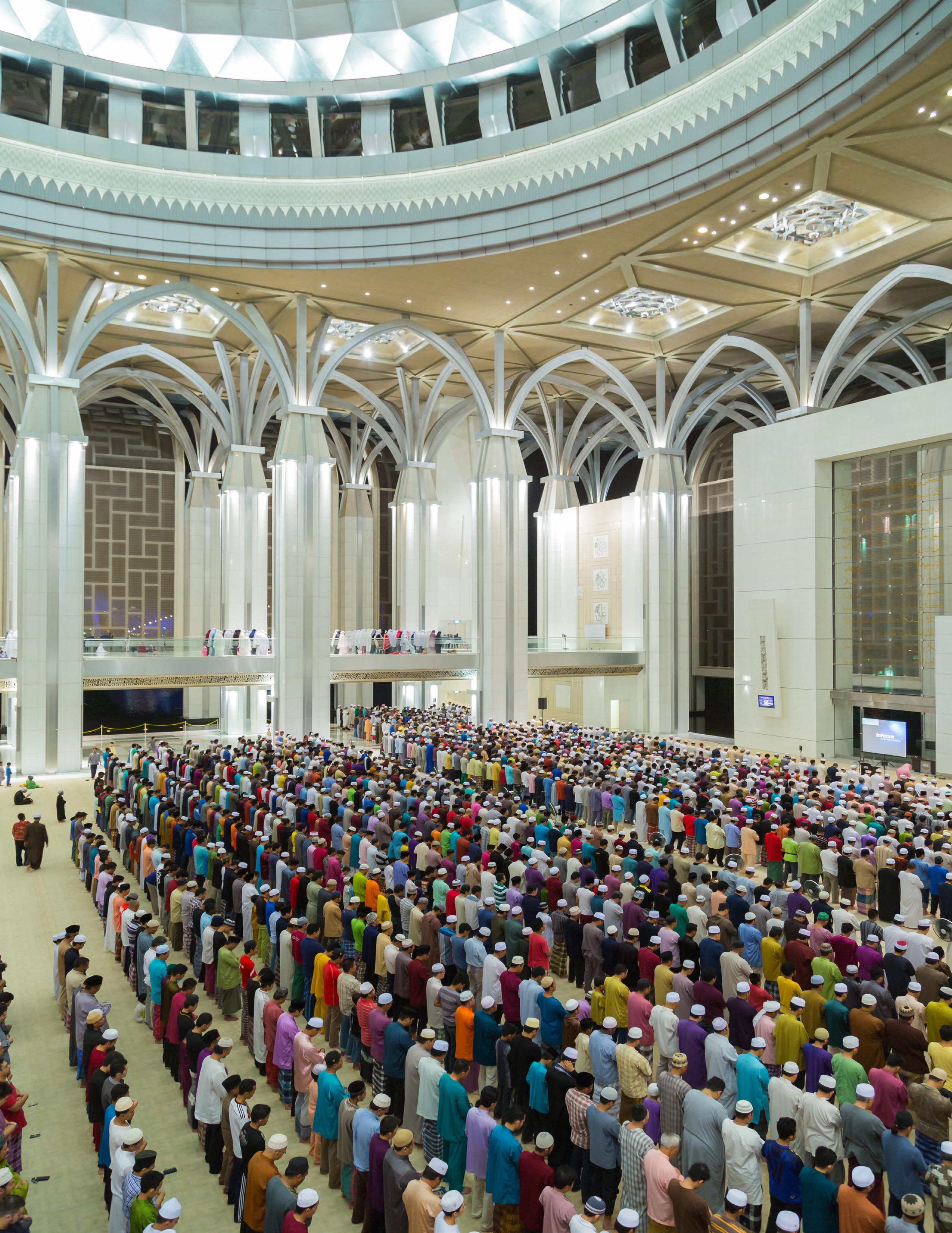
in the shade of the ka’ba Ramadan:
a means of spiritual elevation
Official Magazine of Darul Uloom CANADA INSIGHT mar/apr ’23
SUMMARY
Pearls of wisdom by Our Elders
Parting Advice by Hazrat Dr. Ismail Memon
12
Learn Arabic: Sounds
14 In the Shade of the Ka’ba by Maulana Dr. Mateen Khan
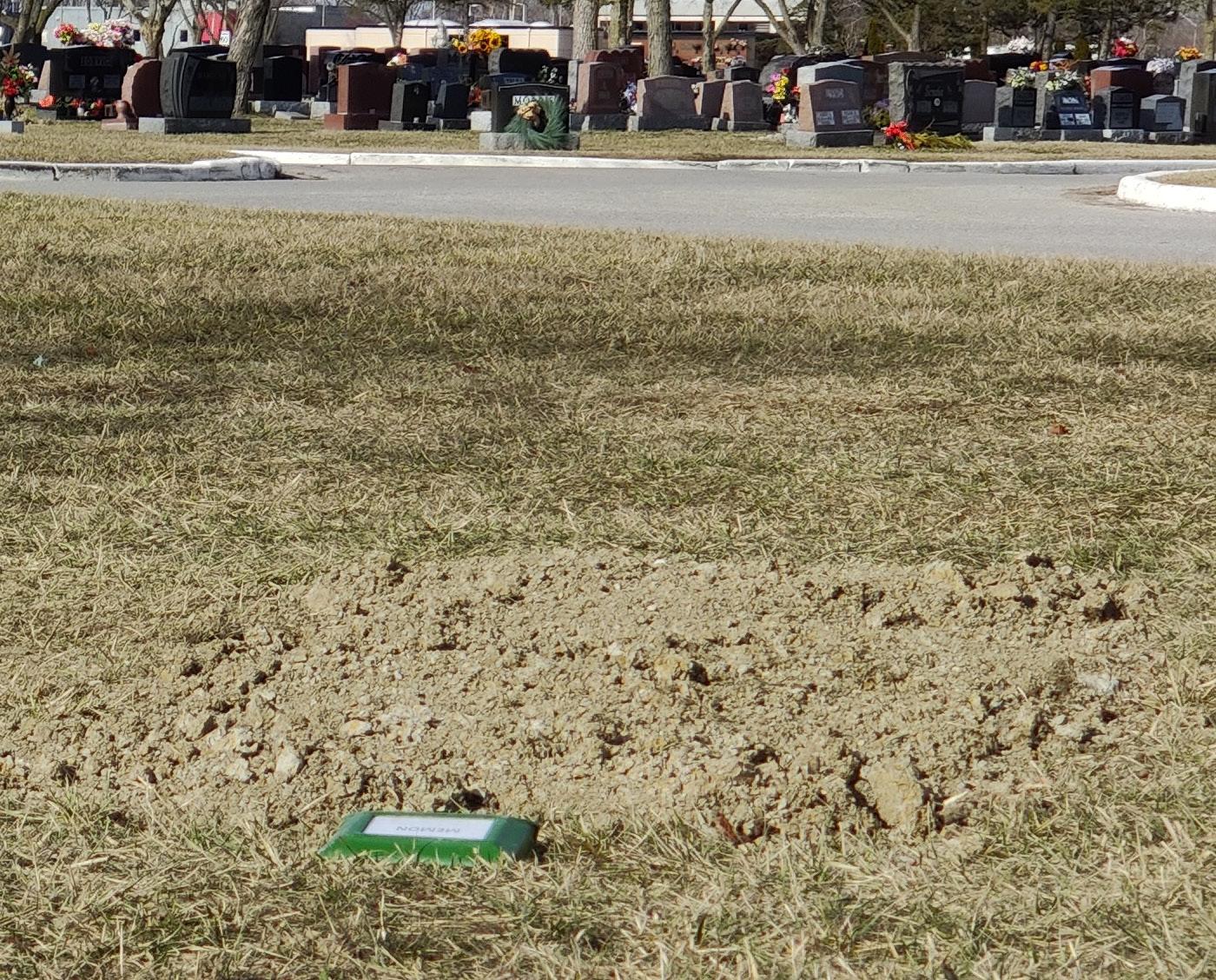
20
Fatawa: Is red wine vinegar permissible? by Mufti Husain Ahmad Badri
26
Last Moments: by Dr. Kamran
Karatela
Insight Magazine
Patron
Hazrat Dr. Ismail Memon
Fatawa
Mufti Husain Ahmad Badri
Contributors
Mufti Omar Baig
Maulana Dr. Mateen Khan
Dr. Kamran Karatela
Maulana Muneeb Tahir Uthmani
M. Zubair Ahmad
M. Bakhtiyar Ahmad
M. Ahmad Amin
Abu Saalem
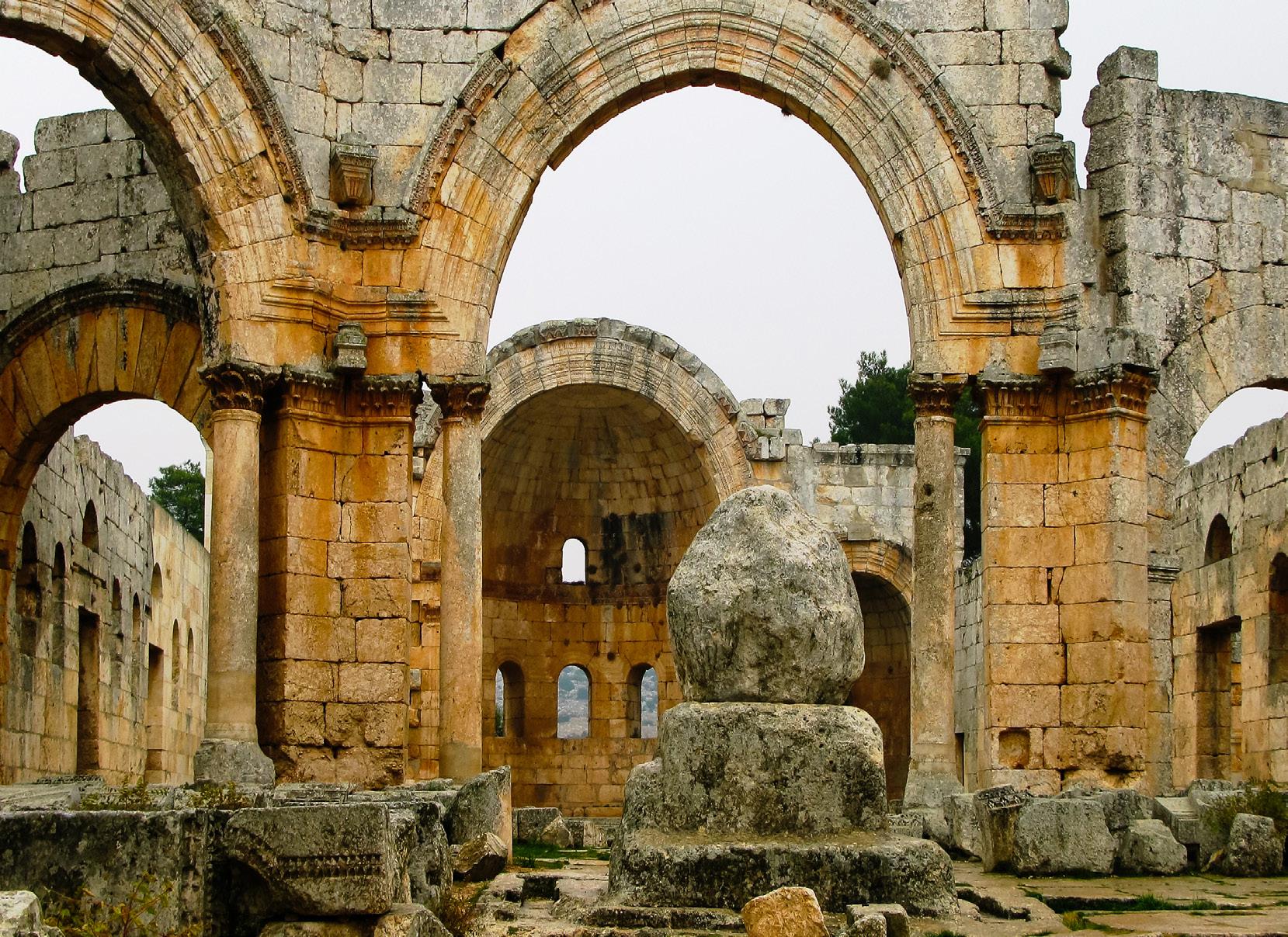
Editor
Asim Ahmad
Phone 5193601028
5 14 Cover
E-mail office@ducanada.org
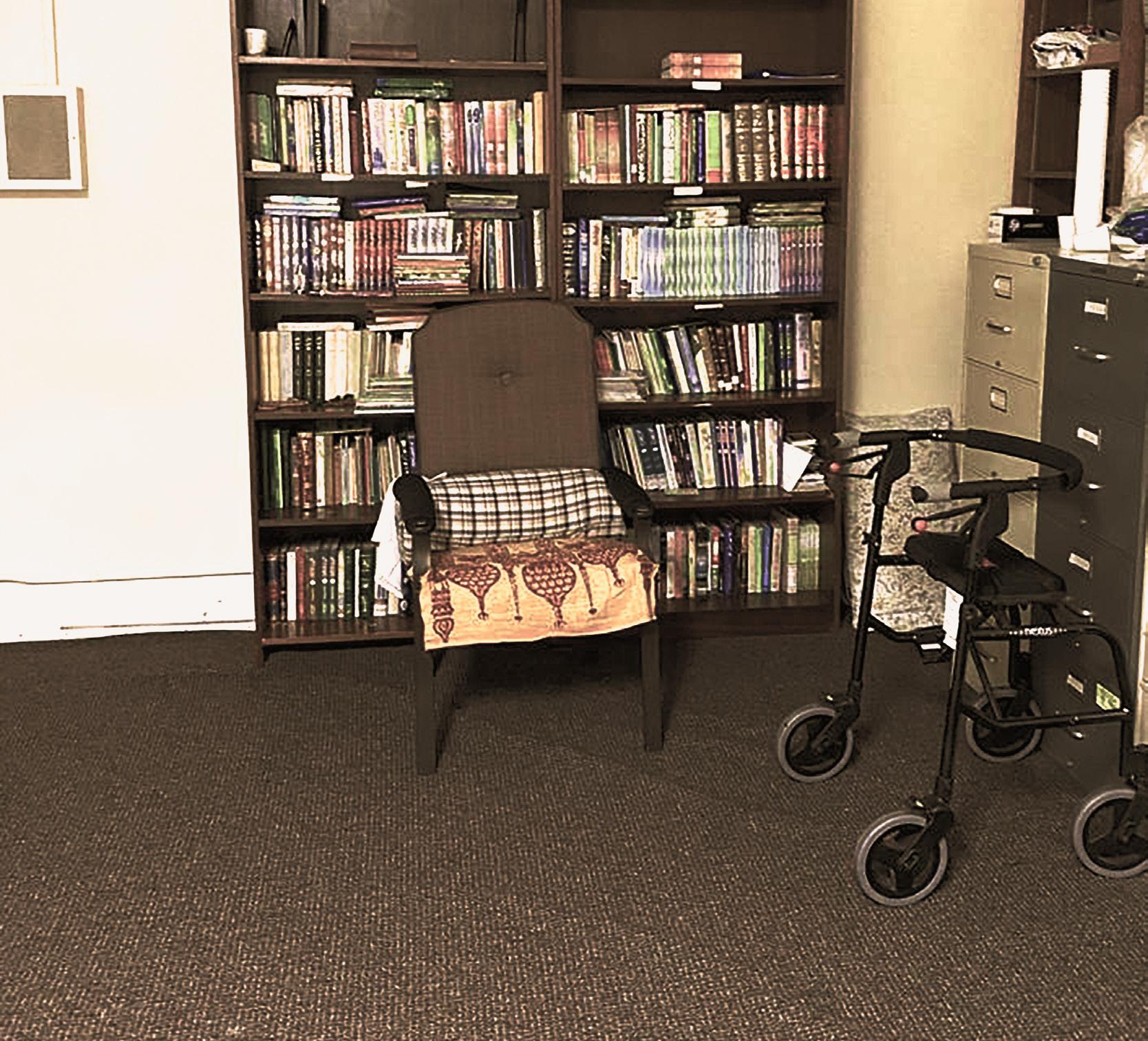
Website www.ducanada.org
Address 51 Prince St. N, Chatham, ON N7M 4J7, Canada
The views expressed in the columns of Insight magazine do not necessarily represent those of Darul Uloom Canada. The articles published in this magazine may be reproduced with due acknowledgment.
Putrajaya, Malaysia
29
June 2014: Sultan Mizan Zainal Abidin Mosque during the holy month of Ramadan.
6 6 20
Had they not looked to the birds above them spreading their wings, and (at times) they fold (them) in?
No one holds them up except the Rahman (67:19)

Jundub bin Abdullah g was a young sahabi who came to visit the Prophet s for a short time in Madina Munawwara. Before returning to his tribe, he made an astute observation. He said, “First, we learned iman and then learned we learned Qur’an, and thereafter, our iman was elevated by the Qur’an” (Ibn Majah).
Indeed, the company of the masha’ikh increases our iman the way the company of the Prophet s elevated the iman of the Sahaba, filled their souls with divine love and expanded their breasts for understanding the Book of Allah.
I experienced the lesson of this hadith firsthand, following the method of the Sahabi, except in the opposite order. First, I first spent some years studying the sacred knowledge, and once I graduated, I thought I was ready to dive into the work of deen.
I was gravely mistaken.
After being introduced to my shaykh, Dr. Ismail Memon, and sitting in his company, the first thing I learned was that I actually knew very little, and that I still had a long way to go. Allah blessed me with knowledge, but it was like information in a jumpdrive. I wasn’t feel -
ing any of it.
After years in his company, the realities behind the things that I always thought I knew opened up to me. I saw the revolution that came into my practice, the devotion that came to my worship and my increased faithfulness to the Sunna. It became clear to me why suhba is so important and how it produced the highest-ranking and most muttaqi generation of our umma who became a major article of our faith. We read about the Sahaba l :
“Loving them is essential to religion, faith, and spiritual excellence, and hating them amounts to infidelity, hypocrisy, and extremism” [ Aqeedah Tahawiyya a.118/p.77].
My shaykh, Hazrat Dr. Ismail Memon passed away on February 3, 2023. I was honored to benefit from his pious company for about 20 years. I sometimes imagine where I would be in my faith and practice had I never met him. I am sure the Sahaba imagined the same about the Prophet s .
It is a scary thought.
No wonder Allah says, “O you who believe, fear Allah, and be in the company of the truthful” (9:119).
4 INSIGHT MAGAZINE
EDITORIAL
Fitna are trials and tribulations and the instruments by which the sincere ones are distinguished from the insincere. The hadith states that many tribulations will befall the umma. The same type of tribulations destroyed previous nations due to their debauchery and transgressions, but since Allah destined the continuity of this umma until the Day of Judgment, the tribulations that descend upon us is with the sole purpose to sift out the good from the bad; and this would only increase in the End Times as disobedience and sinning become rampant.
In a hadith of Tirmidhi under the chapter of Signs of the Hour, fifteen specific sins are cited. The Prophet a says that when my umma falls into these sins, hardships and tribulations will strike. They are:
1. Spoils of war will be made halal
2. They will betray their trust
3. Zakat will be considered a tax
4. Husbands will be subservient to their wives
5. And will disobey their mothers
6. They will trust in their friends and peers
7. And will distrust and distance themselves from their fathers
8. They will make noise in the masjids
9. Transgressors and liberals will be the leaders of the communities
10. Who will be respected out of fear of their power
11. They will drink alcohol in abundance
12. Men will wear silk
13. Music
14. Musical instruments will be widespread
15. They will debase the elders of the past


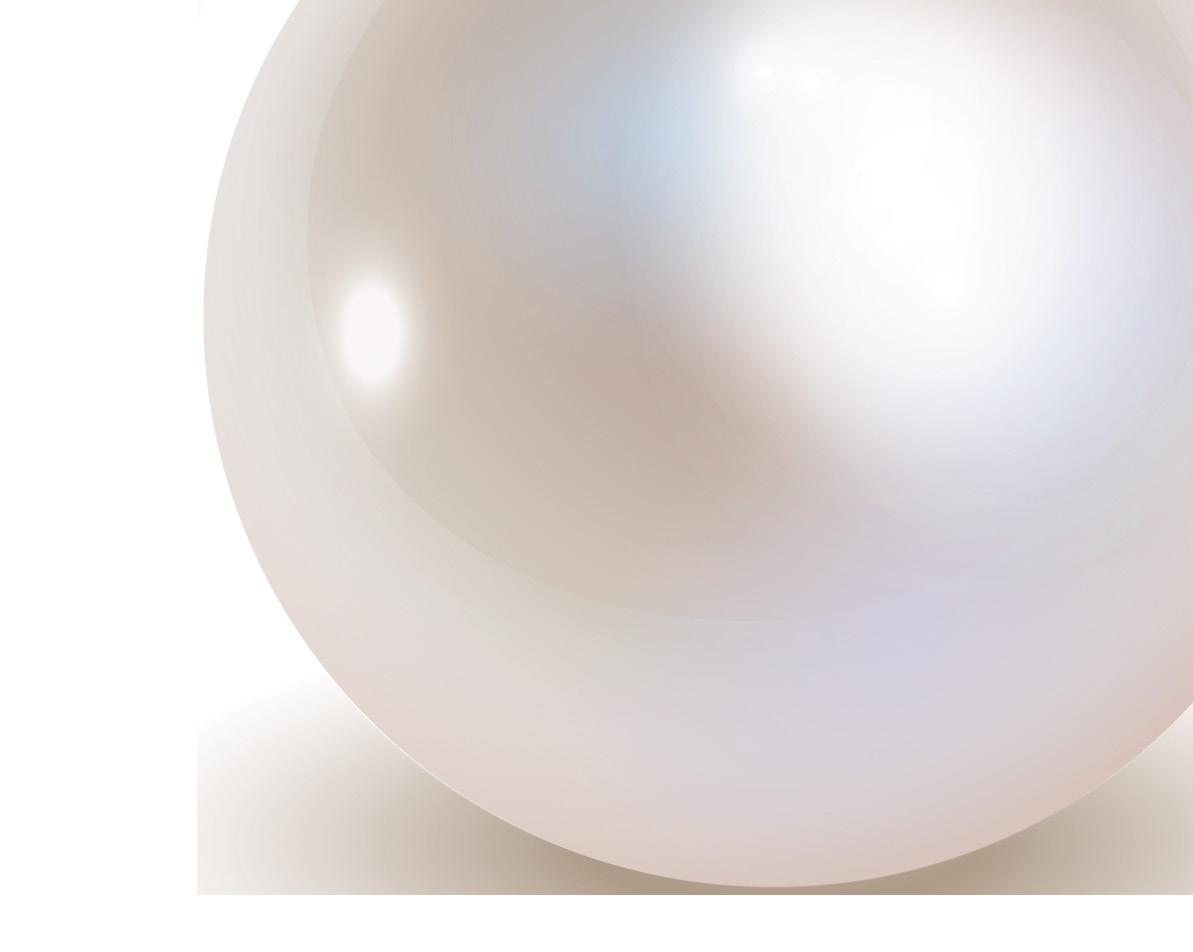
When all these sins will become widespread, then red wind (by which tribulations and sicknesses will spread) and earthquakes will happen consecutively one after another in order that [people wake up] and repent and turn to Allah with humbleness.
The siyar collections (i.e., expeditions of the Prophet a) state that wherever the Prophet a camped for a few days on any one of his expeditions, as for example in the battle of Ahzab where he encamped for 15 days, they built four walls, leveled the ground inside and prayed salat in it, and it took the name Masjid Nabi. The history experts of the prophetic expeditions also labelled these makeshift masjids Masajid of the Prophet of Allah, which became memorials for following generations. They were not masjids in the juridical sense to which the rulings of fiqh would apply.
The prohibition of disputing, causing disturbance, and raising of voices applies to all the masjids in general, but is most serious in the case of Masjid Nabawi. This is why Imam Malik once admonished Ameer al-Mumineen Abu Ja‘far Mansur (95-158 A.H. 2nd Abbasid caliph), for raising his voice in Masjid Nabawi and said, “The Quran teaches us the adab to not raise our voice over the Prophet a in his presence otherwise, all our good deeds may be erased.”
Imam Malik added, “Reverence for the Prophet a after his death does not change any from when he was alive.”
Some say that this type of reverence is all nonsense. To this Maulana Anwar Shah Kashmiri says to the disdainful ones, “Then why did ‘Umar g wish to be buried by the feet of the Prophet a? He is quoted in Bukhari as saying, ‘I have no wish greater than this [i.e., that I be buried by the Prophet a).’ And if specific places hold no sanctity then why did the Prophet a dismount Buraq and pray two rak‘a at Bayt al-Lahm (birthplace of Isa e) upon the request of Jibril e as evidenced in a hadith of Nisai?”
The research epidemic
In these times, one of the illnesses imported from Europe is this crazy passion to research everything and anything. Do know that research is not a bad thing in itself. The Quran itself calls toward it as cited under the ibad ul Rahman ayat in which Allah elaborates on the many qualities of the servants of Allah and says, “And those, when they are reminded of the verses of their Lord, do not fall at them as deaf and blind ones” (25:73).
But Islam has laid out rules and limits for everything. Anything done within those boundaries is beneficial and acceptable while anything that encroaches those boundaries is called fasad (corruption). The first rule of any type of research is that it should be of benefit to either our dunya or Akhira. Otherwise, it is pointless and vain, especially if it instigates or causes fitna. It is like the example of an intelligent son who researches whether the person he calls father is truly his father and then digs into the intimate details of his mother’s past.
Islam has laid out principles and limits for any type of research on the lives of the predecessors and does not allow whoever to say what they want against whomever they want.
PEARLS OF WISDOM
- Malfuzat of Maulana Anwar Shah Kashmiri
- taken from the Maqam Sahaba of Mufti Shafi
PARTING ADVICE
BY HAZRAT DR. ISMAIL MEMON
translation
by Maulana Muneeb Tahir Uthmani edited by Maulana Dr. Mateen Khan
Our Hazrat passed away on February 3, 2023 after devoting a lifetime to reviving the Sunna and the dhikr of Allah. His parting advice was written over 35 years ago but is as relevant today as it was when first written.
Wasiyyat Nama
The Prophet s said, “Whoever left a will after death has died on the right path and Sunna, and he has died with piety and witness, and he has died forgiven” (Ibn Majah).
Then, the Prophet s emphasized this point saying, “A Muslim who has something to write in his will should not spend even two nights without having his will written down with him” (Bukhari).
Today – the 4th of Dhu al-Qa‘da 1405/ 21st of July, 1985 – this worthless person’s age has reached fifty (solar) years, as this worthless person’s birthdate, according to the elders, is 1935. In light of the aforementioned hadith, I write this parting advice:
I advise my children, family, relatives, friends, associates, and all the believers that this life is only for a few days, and death always hovers over our heads. The moments of this life are precious, its value being greater than the whole world and
6 INSIGHT MAGAZINE
everything in it, as the pleasure of Allah and the eternal bounties of Jannah are purchased through it.
Each moment of this life is precious. Do not spend this great bounty of Allah in His disobedience! Do not let any selfish desire and worldly comfort or benefit overtake your time. Value each minute of this life, which is a leave granted by Allah.
Seek forgiveness and ask for repentance for any sins that have been committed, and in the future, remain ever vigilant on your self-reformation; never be careless about it.
Completely abstain from futile and vain speech, actions, and gatherings.
As the proverb goes: I was not able to save myself, but you certainly stay safe, O my Friends!
Strive to weigh each moment of your life and spend it in good. Before doing anything, think, “Is this action which I intend to do or am raising my pen to against the will and pleasure of Allah?” If it is, then sacrifice all the benefits and endure any inconveniences to stay away from it with all your might.
Make acquisition of Islamic knowledge an essential part of your life. Whoever from my children has formally obtained Islamic knowledge should never leave this [prophetic] work. He should always consider himself a student; wherever he can acquire correct knowledge, he should strive for it.
Hold daily ta‘leem (reading) at home
Each moment of this life is precious. Do not spend this great bounty of Allah in His disobedience! Never let any selfish desire and worldly comfort or benefit overtake your time. Value each minute of this life, which is a leave granted by Allah.
with all the family members. This ta‘leem must take place regardless of work or any other reason and everyone, young and old, must take part in it.
Consider the company of scholars who are the guardians of the sacred knowledge [i.e., scholars of the Deoband path] and the Auliya Allah (Friends of Allah) like alchemy and a great blessing. In addition to being to being the torchbearers of knowledge, their fear of Allah and the Last Day, and their vibrant connection with Allah manifested in all their actions.
Bay‘a Bay‘a (pledge) with a Sunnah-compliant, Shari‘a-abiding wali of Allah and
7 INSIGHT MAGAZINE
practicing the prescribed dhikr under his supervision is imperative for one’s self-reformation and progress. Do not think this to be a trivial matter, as this is the spirit of the whole faith. These days there is much negligence toward Tasawwuf. Take great care of dhikr and other devotional practices. All actions acquire life and spirit through its blessings, which is the way to achieving true sincerity and closeness to Allah.
Place importance on religious education and the upbringing of your children from a very young age. Place your children in the pursuit of memorizing the Quran and acquiring religious knowledge.
Protect your children from public schools and colleges like you would from lions or wolves. Sending your children to such a [liberal and irreligious] environment is like throwing them into the Hellfire with your own hands. Since a sizable portion of my life passed through this [decadent] environment, I am well aware of its condition.
Avoid mixing with [irreligious] people who are negligent of prayer, fast, the lawful and unlawful, and the Islamic way of life. If such people are relatives or old friends, then engage with them only enough to fulfill their rights.
Friendships and camaraderie should only be kept with people whose company strengthens your faith. If there is an exceeding attachment with (irreligious) people, then do make a strong effort to bring them to your path.
The Islamic commandment of ‘ordering good and forbidding evil’ is imperative for every Muslim. One of the wisdoms behind this commandment is that it builds a virtuous environment wher friendships become an aid instead of a hindrance [in progress of deen].
Children should also be protected from such unrestrained friendships from an early age.
Revealing Clothing

A great calamity that has overtaken even noble and religious households in this era is the inclination of women to unveil themselves and wear revealing clothing.
Even households that give importance to modesty and veiling have abandoned the vigilance and caution of their elders.
8 INSIGHT MAGAZINE
Both male and female non-mahram no longer adhere to Shari‘a guidelines and they intermingle freely. The repercussions of such intermixing is dangerous for the entire family.
It is essential (for women) to cover from every brother-in-law, young or old, and all other non-mahrams. Unfortunately, there is much negligence in this matter today. The Prophet a called the brother-in-law “death” (Bukhari), therefore, we can never take this matter lightly.
Your women should avoid the company of free and immodest women, as it creates unIslamic tendencies. If relationships are to be kept with someone, try bringing them to your ways; otherwise, separate from them.
Reading Books
Every man and woman should avoid reading books whose essence is against the Shari‘a. Their effect on the heart and mind is inevitable. Ban novels, fiction, and other such books from entering your home.
Only study Islamic books by genuine and Allah-fearing scholars who can be trusted for their knowledge, virtue, and piety. Do not read a book until you have complete trust in its author.
These days, misguided people say, “Do not look at who is talking but at what he said.” Such an idea is the trick of Shaytan. This fallacy has led many pious people astray, and I have personally observed this myself.
Although the people of knowledge can read any book, they should strive to read
only what is necessary because the books of corrupt people affect a person in unseen ways the same way sitting in their company does. Unless there is a valid Islamic reason, avoid their company.
Sending Reward
I humbly request my young and old associates to pray for my forgiveness whenever they think of me during my life and after my death. It would be an even greater favor if they also send me some reward through isal-e-thawab .
I request of my relatives and close friends to recite and send me the reward of Surah Yasin every day, if possible. Otherwise, at least Surah Ikhlas three times daily.
Additionally, I request those people who live in the blessed Hijaz to perform hajj, umra, and tawaf on my behalf as much as possible for which they will also receive a great reward, insha’Allah. Send the reward of as much sadaqat – e.g., clothing, food, and other necessities – as you can in private for the sake of Allah. Always avoid gatherings of ostentation and customs. Neither the dead nor those who spend on such gatherings get anything out of them.
Following the Sunna
Be devoted to the Sunna in every action. Avoid abandoning the Sunna and anything that opposes the Shari‘a. Always abstain from any bid‘a (innovation) and Jahiliyya customs. Try to learn the ways, habits, and conduct of the Prophet a and emulate them as much as you can.
9 INSIGHT MAGAZINE
Consider the company of Sunnah-adhering scholars, elders and attending to them a great blessing.

Veiling from Brother-in-law
In our family, veiling from the husband’s brother is not given much importance, as is the general situation of Muslims today.
When I was about to get married, I wished to revive this Sunna, and decided to start with my own family. I convinced my brother, Abdul Razzaq, who had by this time reached maturity, of this (while my other brother, Abdul Sattar, was still very young.) Then, after my nikah, I convinced my wife too. This way, the order of veiling from the husband’s brother was revived in our house. My relatives protested, but we did not give it any mind. After a short while, everyone was accustomed to it.
Some years later, in the blessed city of Makka, my elder brother’s wife, Sister Zubaydah, herself said, “Dr. Ismail’s wife fully covers from her brother-in-law, and so does Asiyah 1 from hers. Why should we stay behind in obedience to Allah?” Then, she herself started covering up from me. However, our youth no longer give this matter any importance. Therefore, my parting advice is that we make segregating and veiling from older and younger brothers-in-law and other non-mahram paramount.
Do not consider this impractical; such a devious thought is a ploy of the nafs and Shaytan. Allah and His Prophet a never gave any order that is impossible or im -
practical. Marriage
Do not follow the Jahiliyya customs of marriage. Instead, observe the limits of the Shari‘a in every matter and abstain from anything that opposes the Shari‘a and Sunna. The chapter of marriages in the book Aap Beeti by Hadrat Shaykh Muhammad Zakariyya should be studied repeatedly and read out to the household. Give first priority to piety and virtue and not wealth, status, or beauty when searching for a suitable spouse. All other criteria should be secondary.
If I have wronged, hurt, backbit, or have otherwise harmed anyone physically, verbally, or emotionally, then forgive me for the sake of Allah. I also forgive every non-monetary right, without exception.
Expectations
10 INSIGHT MAGAZINE
1. Asiyah is Ahmed’s (Hazrat’s elder brother’s) wife
I advise all my relatives and friends not to pin any hopes or expectations with anyone in this world. Distress and quarrels and the like only happen when something goes against your expectations. Without holding expectations, there will never be any distress.
On the other hand, if someone does something for us or helps us in any way, we
own opinion, and every person thinks as if he receives revelation from above. The Prophet a had already informed us of this as one of the signs of Qiyamah.
Therefore, it is my parting advice to my relatives, friends, and loved ones to be aware of this. Keep your point of view flexible and be as open-minded as possible. There is much disagreement and division in the ummah today. Try your utmost to create an atmosphere of unity, agreement, and love in the umma.
Studying al-I ‘ tidal and Takmilah al-I ‘ tidal by Hazrat Shaykh Zakariyya Kandhelawi and Hudud Ikhtilaf by Mufti Mahmood AhmadGangohi are beneficial in this regard.
I am noticing our friends and loved ones falling short in their prayers, in praying with congregation, and in arriving in time for the first takbir. I find this very hurtful. Thus, it is my parting advice that they give due importance to praying in the masjid with congregation with takbir-e-ula, regardless of how busy they are or how little free time they have. Do not take this matter lightly and do not give other things preference over this. I again stress that do not take this matter lightly and give it its due right!

should consider them our benefactor. This creates love and harmony between us.
Our [spiritual] condition is illustrated by the proverb: “There is no one like me.” Every person is obsessed with their
11 INSIGHT MAGAZINE













learn Arabic CLAP قيفصتل ا snoring طيطغل ا grumbling stomach ةرجمزل ا lightning زيزلْا ا
cooing
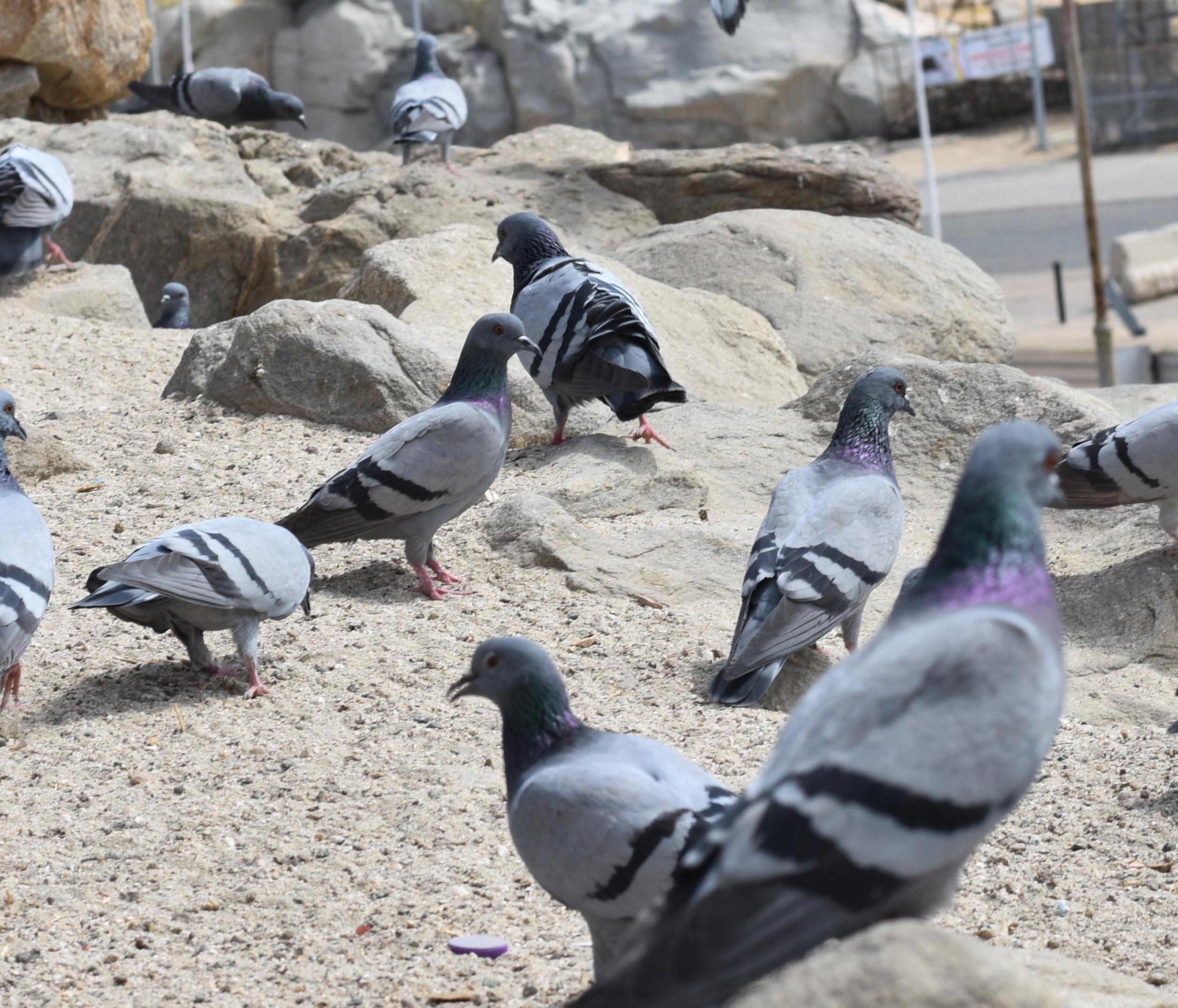

dripping water ََ ري رخل ا
ََ لي دهل ا
pigeon
by Maulana Dr. Mateen Khan
IN THE SHADE OF THE
KA’BA
Astoic structure, the Ka’ba has been a silent witness to many important events. For this, it has my envy. It has stood as the base of a pillar that stretches far into the heavens; a building constructed upon divine command as a source and direction of spiritual light. Like comets, people from across Arabia have endured unforgiving empty expanses to simply circumambulate it before returning home. Even the surrounding houses stood like stationary satellites caught in its gravity. It is a sun, and they its solar system. Decades before, the noble child Muhammad s , like the Ka’ba, began to attract many into his orbit. From family members, hermitic monks, and townsfolk to close companions, they observed his impeccable character and bore witness to it in word, deed, and life. All this well before he was proclaimed a Messenger. This chapter briefly outlines some personalities that coalesced around him before prophethood.
14 INSIGHT MAGAZINE
SEERAH
3
CHAPTER
The Uncle Abū Ṭālib
After ‘Abdul Muttalib’s burial, the eightyear-old Muhammad s and his foster mother returned to the house of his uncle, Abu Talib. ‘Abdul Muttalib did not leave this world without arrangements for his dear grandson. He instructed Abu Talib, who was the full brother of ‘Abdullah and closest living relative, to look after the child. Obedience to his father’s last wishes and a strong blood relationship, brought the child into his house. However, an undying affection and fierce life-long devotion kept Abū Talib attached to his beloved nephew, favoring him over his own sons. In any other household, the horns of jealousy would bludgeon hearts and destroy families. However, his s presence was such that no matter how many sought his attention, they all walked away satiated. In those days, Abu Talib and his sons, ‘Ali, Ja’far, and ‘Aqīl sought his attention. In later days, it would grow to hundreds of thousands and miraculously, none envied the other in the least.
The Loyal Monks
One day and a thousand miles away, the nine-year-old child s emerged with a caravan through scattered air and dust from a desert valley in the mountains near Busra in Sham. The secluded
monk Bahira had lived there for some time among the boulders and trees as his companions. He cared little for the world or the oft-traversing caravans which sought it out. This time, however, he noted something extraordinary – those boulders and trees leaned into the path as if to reach out in yearning towards a group of travelers. Bahira knew that just as these objects remember their Lord, they also long for His Emissaries. He also knew the time was close for the arrival of the last Messenger. Frantically, he searched through the group until he beheld the young boy s, shaded by a tree and a cloud with the mark of prophethood on his back. Abu Talib was among the group and like most Qurayshi men, he was a trader travelling to Shām in search of profit. Before his departure, his young charge
15 INSIGHT MAGAZINE
s fearing separation, came close to him - for an uncle is like a father. He had already lost too many of those. It was not an expedition for children. Despite this, Abu Talib also not wanting to separate from him, relented. The two endured the desert with the caravan until they reached Bahira’s locality.
Enmity against prophets was a recurrent trait of the People of the Book. At the time, the Christian Romans were already searching with ill-intent. However, there have been some like Baḥhira that protected those beloveds of Allah. “Return him home safely and protect his identity,” Bahira urged Abu Talib. “This is the master of the worlds. This is the messenger of the Lord of the worlds. Allah will commission him as a mercy to the worlds.” Not knowing what to make of this exactly, but not wanting to tempt fate either, the child s was sent back to the safe obscurity of Makka. Nine years later as a business partner of his future wife, he would meet another loyal monk, Nasḥūrā. He, too, would recognize the young man s and proclaim, “This one! He is a prophet. He is the last of them.”
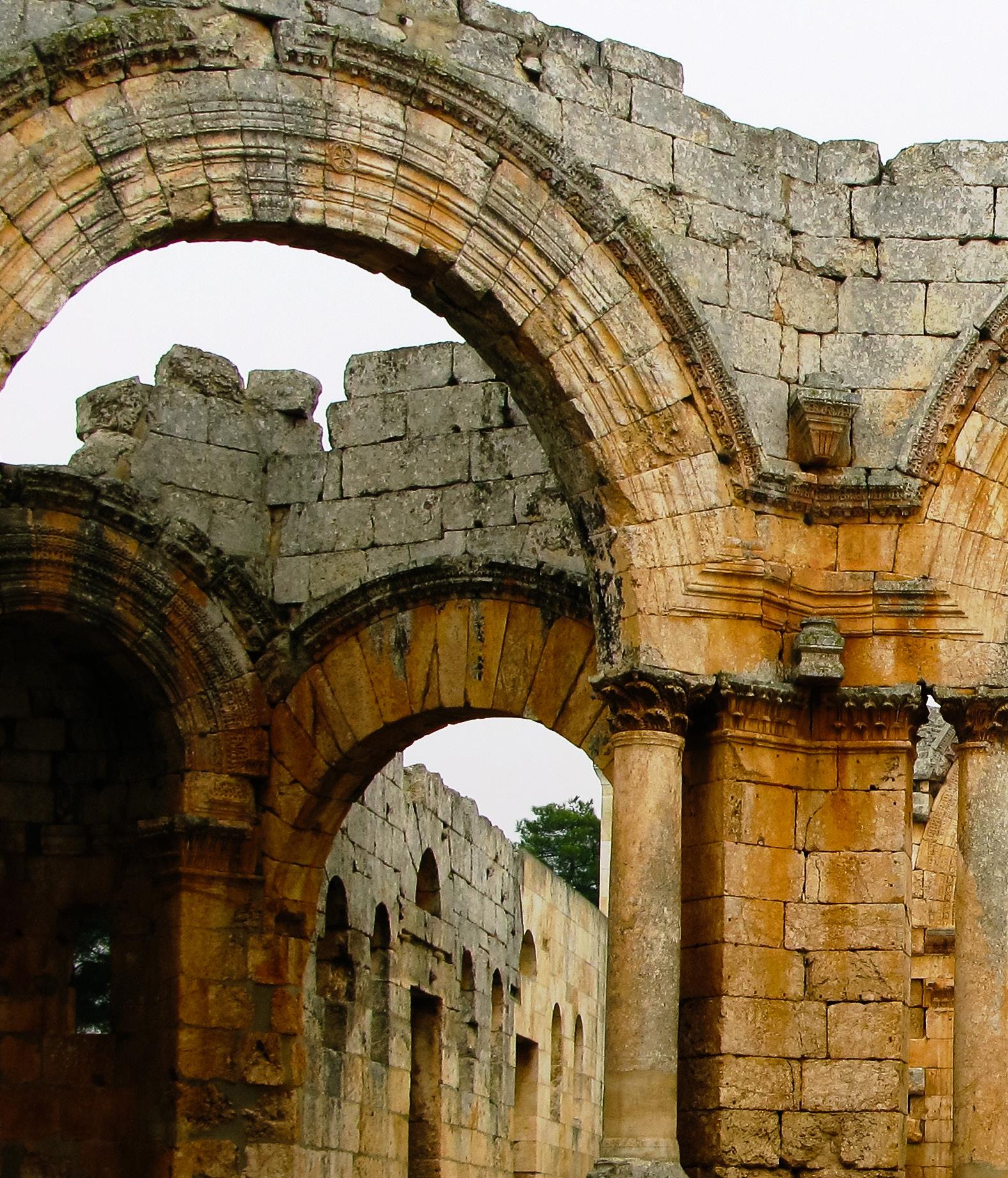
Those episodes were just two signs in a long series of events. Allah, the Exalted, was preparing people for a predicted and long prophesized point in history. Prior to this, the Prophet Ibrāhīm requested Allah for a purifying Prophet, and the Prophet `Īsā foretold of one most praised. The most telling yet subtle sign was the tar-like coating of evil and immorality that had covered the hearts. They had become deaf to advice, ignorant of the divine, and blind to uprightness. However, Allah,
the Exalted, is not One to leave man neglected. He intended to send a light, both enduring and guiding, to vaporize darkness until the world’s end.
The Makkans
Meanwhile, the Makkans increasingly gravitated towards the young man s. He was unlike other men that were universally tainted with Jahiliyyah maladies. For them, he was a humble and patient shepherd; a kind and noble caretaker; an honest and reliable trading partner; a strong and pure desert Arab. When he spoke, he always spoke the truth. When he was entrusted, he always fulfilled his trust. Unusually, he seemed unable to do otherwise. Thus, people made a note of it and referred to him as al-Sādiq and al-Amīn, the Truthful and Trustworthy. Abu Talib verbalized this in a beautiful way at the occasion of the Prophet’s s marriage, “Indeed, Muhammad is such, if other Qurayshī youth were to be weighed against him, he would be greater in nobility, generosity, grace, and intelligence. Al-
though he has little wealth - for it is a passing shade and a trust to be returned - he possesses a desire for Khadīja bint Khuwaylid and she possesses the same for him.”
On another occasion, the Quraysh, as the custodians of the Ka’ba and those nearest to it, began rebuilding its dilapidated structure. Building the Ka’ba was an enviable event having only taken place a few times in the course of world history. The subtribes worked together until only the Black Stone (al-Hajar al-aswad) remained. Egos inflamed over the right of its placement. Swords of pristine metal and hands of dripping blood were advanced by all involved. If rebuilding the Ka’ba was a tribal and a once in a millennia honor, placing the Black Stone
16 INSIGHT MAGAZINE
was the ultimate privilege. For several days, the threat of a long war and hostility grew, and the air around the Ka’ba became thick. Eventually, they agreed the first to enter the sanctuary the next day would have the choice in the matter. In the morning, they raced through cool streets and settled sand only to find the innately pious 35-year-old Muhammad s already there for his morning visit. Voices went out saying, “This is Muhammad, the trustworthy (al-Amīn). We are pleased (with him). This is Muhammad, the trustworthy.” In an act of wisdom and gener-

Bahira may have worshiped in a monastery similar to this Roman-era monastery in Syria.
osity, which endeared him even further, he set the stone in a sheet to be carried by all the chiefs as he guided it gently into its resting place.
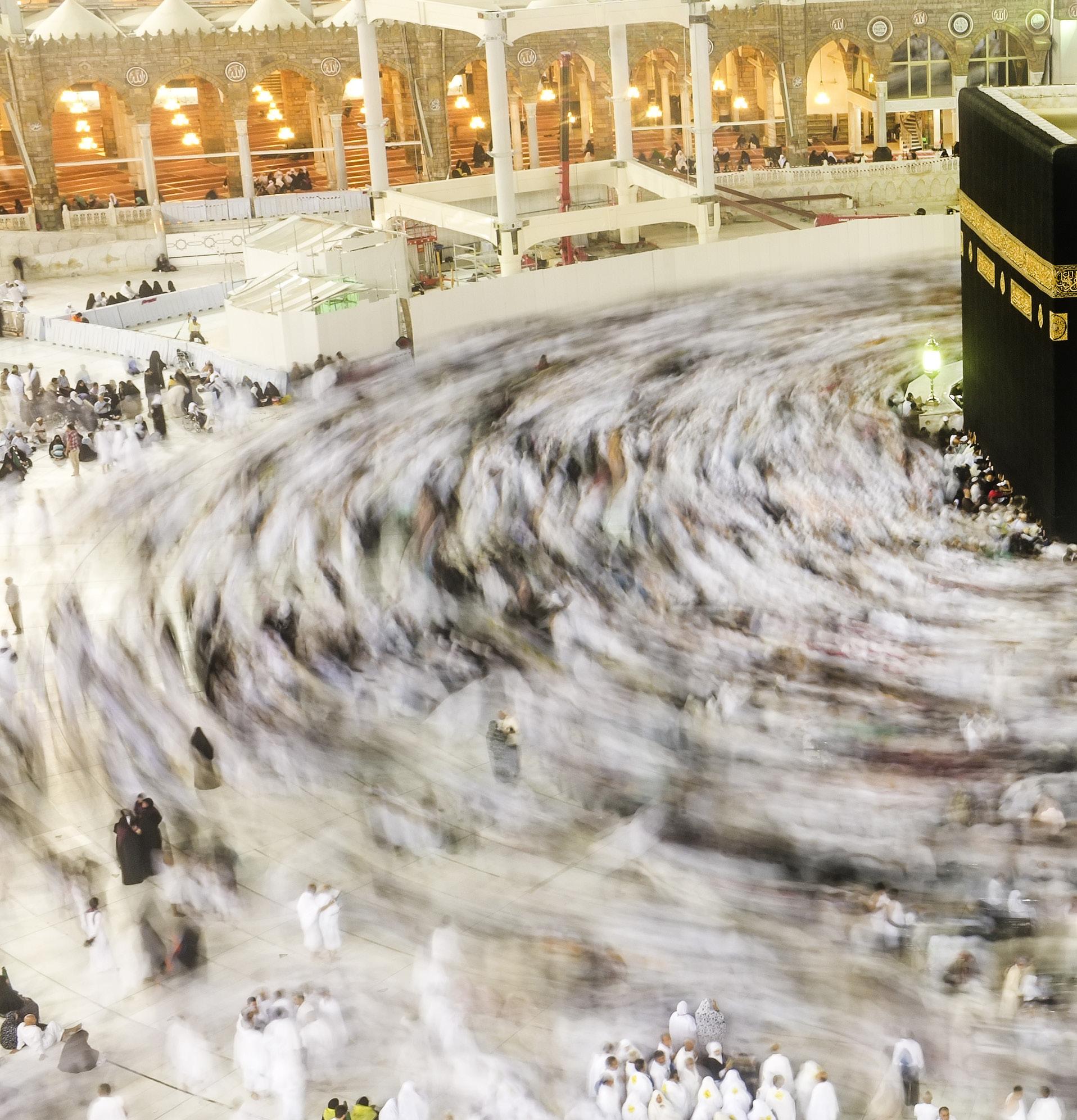
The Wife Sayyida Khadija
Among the Makkans was a Qurayshi widow, Sayyida Khadīja. One day, she looked out anxiously over the terrain from her upper floor. Through the arid mirages and refracted air, she saw her latest business venture come into view. After her last husband died, she began to invest her wealth with trading partners. As an astute yet modest and desirable woman, she would remain in her Makkan home as they traveled and engaged on her behalf. This time, the returning venture was different. Her investment was in the hands of the highly lauded yet inexperienced Muhammad s. However, it was not the investment which concerned her, but rather, she wanted to hear about him. She had sent her slave and agent, Maysara, to observe her business partner. Upon returning, Maysara burst with stories of honesty, purity of faith, fortune, and supernatural events. Afterwards, she was, no doubt, divinely inspired to propose marriage to the Prophet s. It was a perfect marriage of immeasurable mutual love.
Together, they would form a binary star - two separate individuals about a common point acting as one - unlike any birthed by the universe. She of forty-years-old would prove to be a devoted wife and an embodiment of purity, intelligence, and dedication to her husband. She would bear witness to the innermost perfection of her husband as only a spouse could. He, now 25-yearsold, would reciprocate a loyalty that lasted well beyond her passing.
Sayyiduna Abu Bakr
One day, the Ka’ba bore the brunt of a white sun’s scorch and cast a shade over an immensely important individual. Possessing a deeply inquisitive nature and extensive experience, you
would have thought he had heard all that people usually speak of. However, he now sat surprised in thought with the blacks of his eyes dilated. He had just heard for the first time about a foretold prophet to come.
Sayyiduna Abū Bakr was another Makkan and universally respected for his intelligent inquiries, noble traits, and acumen in trade. He was an expert in the genealogy of people and an excellent judge of character. Hence, he would often say about the Prophet s when he saw him approaching:
The Trustworthy, the Chosen who calls to
virtue,
Like the full moon from which the darkness flees.
He distinguished himself as one who vehemently stood for the truth and inclined towards purity in belief and thought. So long before Islam, he
However, it was cerned her, but rather, him. She had sent to observe her business
18 INSIGHT MAGAZINE
Upon returning, honesty, purity of ural events.
shunned idol worship and kept his mind free of intoxication. In traits, he was much like a twin to the Prophet s. How extraordinary?! While the Prophets are preserved upon an innate purity (al-fiḥra) and divinely protected from sin (al-`iṣma), Sayyiduna Abū Bakr cultivated his nature without divine protection to a degree no other common man would. Hence, it comes as no surprise that a soul of such stature would befriend the most noble of creation s. He became a close companion to the Prophet s and intimately witnessed his intrinsic honesty, beautiful nature, and noble character even before his prophethood. This was a perfect companionship of immeasurable mutual benefit. The Prophet s would have a friendship he could not alone repay, and Sayyiduna Abū Bakr would be elevated to a stature no common man may claim.
Indeed, the Ka’ba is worthy of every envy. It looked over the two spouses when they prayed together, shaded the two companions when they gathered, and beheld the gaze of the Messenger of Allah, may Allah’s peace and blessings be upon them all.
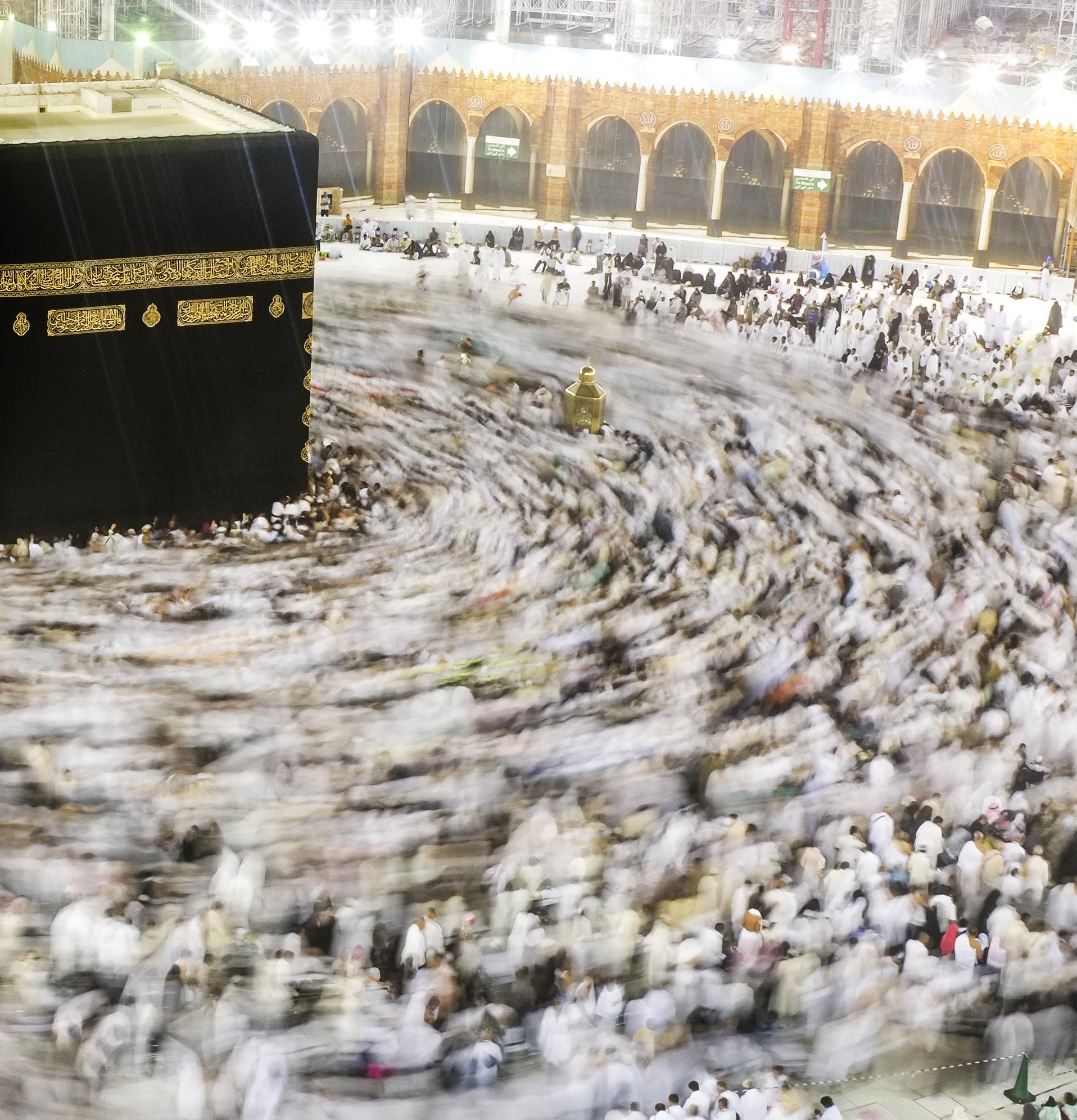
not the investment which conrather, she wanted to hear about her slave and agent, Maysara, business partner.
19 INSIGHT MAGAZINE
returning, Maysara burst with stories of of faith, fortune, and supernat-
Mufti Husain Ahmad Badri
Q.Unfortunately, I am unable to take offfrom work for Ramadan and have to work full-time in the mornings. It is difficult for me to attend all of the tarawih prayers at the masjid as it will be hard for me to fast and work when reaching home at a late time. Will it be permissible for me to leave the masjid after 8,10, or 12 rakats? Will it be okay for me to not attend the masjid and just pray at home?
A.Tarawih is Sunnah mua’kkada, which means that without a valid excuse one should not miss any portion of the tarawih prayers. To do so would be sinful. Since congregational salat in the masjid and completing one whole Quran in it is more virtuous, therefore, it is advisable to pray all 20 rakats in the masjid. The next best scenario is that one prays all 20 rakats at home with a Quran khat am. If time constraints make that difficult, then one may pray how ever many rakats possible in the masjid to maximize the amount of Quran being finished, and then pray the remainder at home. If even this is not possible, one may pray however much of the Quran, but it must be 20 rakats.
Q.Is it permissible to make and/or use red wine vinegar?
A.Redwine vinegar is made by fermenting red wine. During fermentation, the alcohol in red wine is converted into acetic acid which is the main component of vinegar. Therefore, red wine vinegar will be permissible -the wine had naturally converted into vinegar or through a synthetic process. However, it should be noted that it is impermissible for a Muslim to buy alcohol.

20 INSIGHT MAGAZINE
FATAWA
Q.Iam currently 35 years old but my beard has turned grey and my wife insists on dying my beard and all the the hair on my head black and not brown. In such a case, would it be permissible for me to dye my hair black or not? Also, would it be permissible for my wife to dye her hair blond? If not, then which colors are permissible?
A.In principle, it is permissible to dye one’s hair any color with the exception of black since it is prohibited in the hadith. Therefore, it would be advised to avoid black dye, however, one can use dark brown dyes that appear to be black in order to attain the same purpose. Similarly, it would not be permissible to dye the hair with colors that are deemed unnatural since that would be considered the way of immoral people. Therefore, it would not be permissible to dye one’s hair or beard black, however, one can use dark brown dyes that appear to be black in order to attain the same purpose. Moreover, it would be permissible for your wife to use any color including blond to dye her hair as long as she avoids unnatural colors like pink, purple, or bright green.

21 INSIGHT MAGAZINE
Q.Is it permissible for me to refer to my stepchild as a son and for my stepchild to refer to me as a father?
A.In Islam, claiming one’s stepchild or stepfather to be the biological son or father is prohibited. However, it is permissible to refer to one’s stepchild as a son and for the stepchild to refer to his stepfather as a father since these words are said out of affection and respect. It is narrated in Sahih Muslim that the Prophet a said to Anas Bin Malik g, “O my son”, although he was not his son. Likewise, there are many other such examples in the Qur’an and hadith. Therefore, there would be no problem in referring to one’s stepchild as a son or vice versa as long as one does not claim any biological relationship.
Intenti
inhalin g while fasti ng invalida te
break and he will have to make qada.
Q.What should a person do if he forgets to recite a Surah after Surah Fatiha? Will salat be valid or should it be repeated?
Q.A
few days ago, I was going to my local masjid for Zuhr but arrived a little late and missed three rak’at with the jama’at. For the fourth rak’at, I joined the imam and began to go into ruku’ while the imam was getting up from ruku’. In such a case, did I catch the final rak’at?
A.In principle, a person has caught the rak’ah as long as one says the takbir while standing and begins to go into ruku before the imam has fully stood up. Therefore, in the aforementioned scenario, you have caught the final rak’at of Zuhr salat.
Q.Does inhaling steam for medical reasons while fasting break the fast?
A.Intentionally inhaling steam while fasting will invalidate one’s fast. Accordingly, if one intentionally inhales steam while fasting due to sinus or any other medical reason, his fast will

A.In principle, it is compulsory for a person to recite a minimum of three short ayahs or one long ayah after Surah Fatiha in the first two Rakats of a fard salat. Only Surah Fatiha will be recited in the third and fourth rak‘a. If a person is to be praying nafl or wajib salat, it is compulsory for him to recite a minimum of three short ayahs or one long ayah after Surah Fatiha in all four rak‘a.
In the enquired scenario, if one forgets to recite a surah after Surah Fatiha, he must perform sajdah sahw (remedial prostration) for his salat to be valid. If sajdah sahw is not performed, the salat must be repeated. However, if one purposely skips the recitation of a surah after Surah Fatiha, it will be necessary for him to repeat the salat.
Q.I work at a gas station that sells beer, wine, and cigarettes which is hard to
22 INSIGHT MAGAZINE
onally
onally g steam ng will te one’s fast.
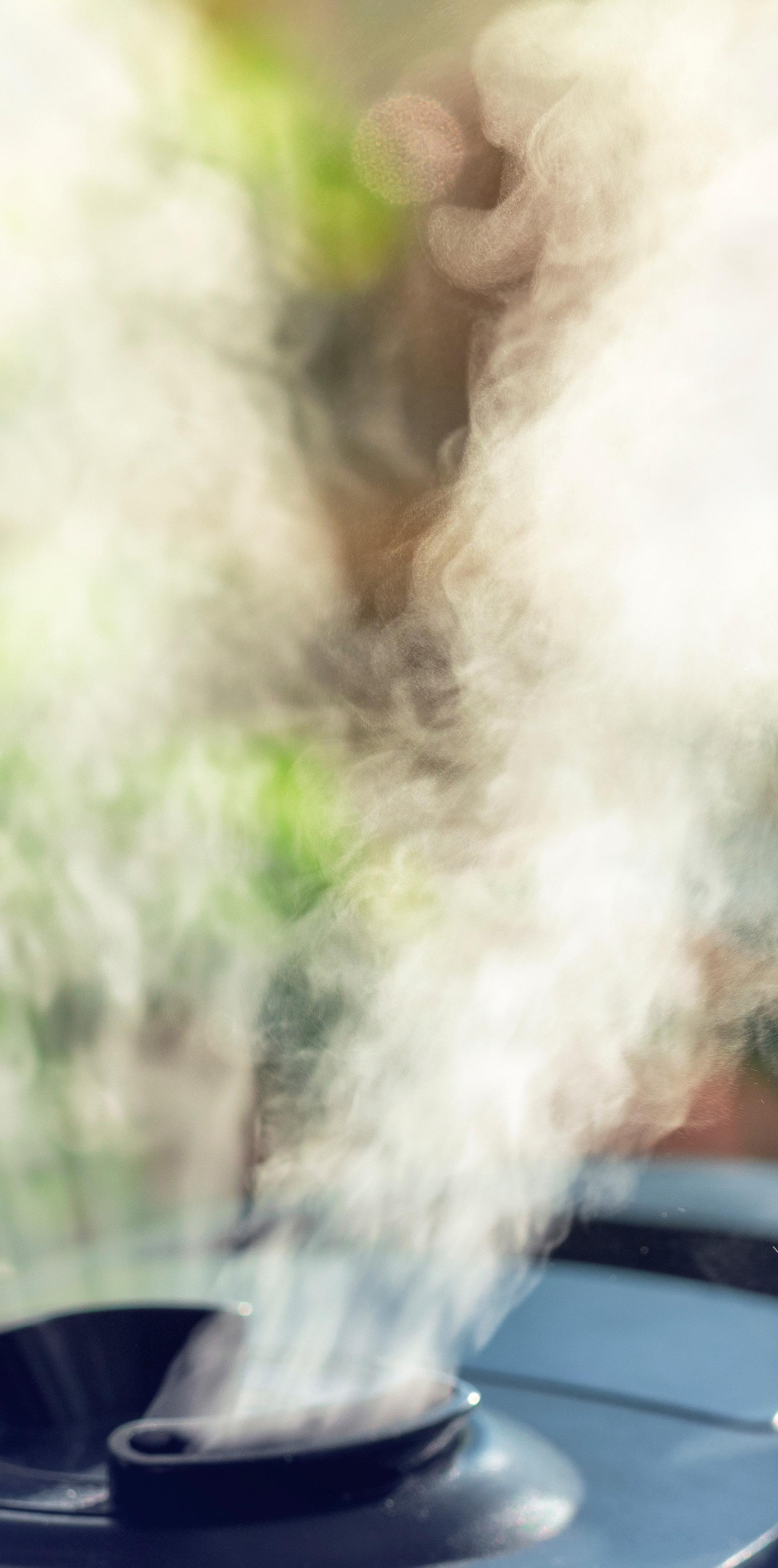
avoid in most cases though most of the income is through gas. What should I do in such a scenario?
A.Asa principle, two aspects must be considered when evaluating Shari‘a-compliance of any job:
1. The nature of the job itself
2. The source of the funds used to pay the employee
By working as a cashier in a gas station, a person is paid for the time spent on his job, irrespective of how much work is done. A cashier is not paid specifically for the work he does, but rather for being available at the job, some of which is halal and some which may happen to be haram.
If a person works at a gas station that is owned by a non-Muslim, the money is not tainted by the owner using it in a non-Shariah-compliant transaction. Thus, the income is halal and the cashier does not have to give any amount of his salary to charity. But it is necessary for the worker to look for another job since there is certainty of him falling into something that is prohibited. And Allah knows best.


24 INSIGHT MAGAZINE Prophesy
When zakat becomes a tax.
One of the signs before the Day of Judgment is that the people of belief will be burdened by zakat. In this prophesy, the Prophet s is indicating toward the weakness of connection with Allah and how zakat, which is only given once a year, and is only 2.5 % (less than sales, property, income tax) of our annual income, seems like a back-breaking burden.


25 INSIGHT MAGAZINE
Tirmidhi , ma ja fi alamat hulul al-maskh
Moments
The last moments of my Shaykh, Hazrat Dr. Ismail Memon r Dr. Kamran Karatela
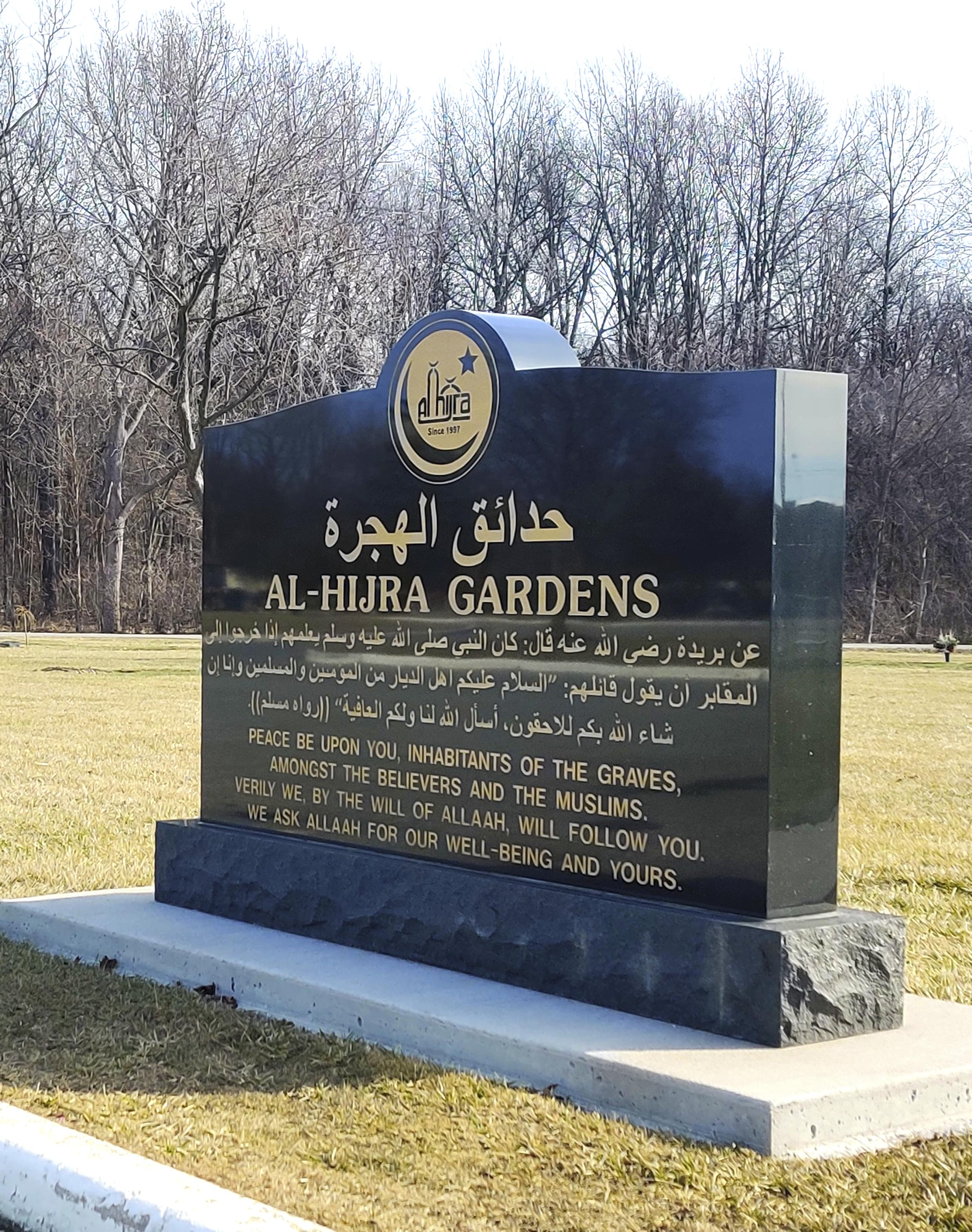
last
26
INSIGHT MAGAZINE
Ibn Umar k says, once ten of us including myself, visited Rasulullah a , when a man from the Ansar stood up and said, “O Rasulullah a , who is the wisest and most prudent of men?”
Rasulullah a replied, “The wisest of men are those who remember death more than everyone else, and who are occupied in preparing for the Akhirah more than everyone else. It is such people, indeed, who win distinction in this world and who will be raised to positions of honor in the Akhirah.”
The entire life of my beloved Shaykh Hazrat Dr. Ismail Memon was a perfect picture of the above hadith. He remained occupied in preparing for his Akhirah until the last moment of his life.
Few years back I narrated a dream to him where I saw that his soul had departed and he had met his Lord, leaving us crying. In reply, he had said, “ May Allah hasten this meeting.”
The words sent shivers down my spine. This is a sign of a true believer who not only is ready but is truly yearning to meet his Lord. It is said in a hadith that death is a gift for a believer. Anecdotes of the final moments our pious ancestors are a great source of inspiration that evelate our iman. We were privileged to have known Hazrat who was a reflection of our illustrious predecessors. And his final moments were no less inspiring than his life on this earth. I swear, since seeing your face, the whole world is fraud and fantasy. The garden is bewildered as to what is leaf or blossom. The distracted birds can’t distinguish the birdseed from the snare. A house of love with no limits, a presence more beautiful than venus or the moon, a beauty whose image fills the mirror of the heart.1
Sha’ban, 1443/May, 2022
It was 15 th of Sha’ban when Hazrat fell ill. Just before Maghrib, he had severe rigors and was semi-unconscious. The sight was frightening and our hearts sank. The gestures he made indicated as if he was departing from us. I asked him if we can take him to the hospital, but he did not reply.
Mufti Husain, his youngest son, and I decided to take him to the hospital should his condition remain the same. After a few moments, the rigors stopped and he seemed more alert. We asked him again if we could take him to the hospi -
Listen! Indeed, the friends of Allah-neither will they fear nor will they grieve 10:62 27 INSIGHT MAGAZINE
1. Maulana Jalaluddin Rumi ( The Divan-e-Shams Tabriz XV)
tal and he nodded affirmatively. We helped him with wudhu and he prayed Maghrib. He then wanted to rest and went to bed. I sat down beside him on the bed. He suddenly opened his eyes and said that it was his will that he does not want to go to the hospital and then stated his will about his burial. My heart plunged. By Isha time, his condition became more stable. I started treatment at home and with the assistance of my beloved friend Dr. Mohammed Saad and his mother, Dr. Sultan, we were able to treat him at home. Allhamdullilah, his condition improved day by day.
Subhanallah! Even in this state, he was concerend about Ramadan and started to make preparation for i’tikaf.
Ramadan 1443/May, 2022
As Ramadan approached, his zeal and enthusiasm increased, and on 29 th Shaban, he moved to his mu’takaf at Darul Uloom. As usual, people from far off places came to spend the entire month with him, and he attended to their needs, despite his frailty. Throughout the month, his condition kept fluctuating and he continued to receive active medical treatment. Allhamdullilah, he was able to complete the month long i’tikaf.
Post-Ramadan
After Ramadan, his condition gradually started to improve .He rested at home for a few weeks and subsequently he was stable enough to resume his routine of going to the madressa between Asr and Maghrib where people would gather in his room for dhikr. However, in the fall his condition deteriorated again and he stayed at home. He would still meet people with the same love and affection and answered their queries. However, physically he was getting weaker and weaker.Despite all that, he never missed a single salat with ja -

ma’t even once. He would talk about his Shaykh Hazrat Maulana Zakariya and other elders often. This was the only thing that would perk him up.
Weeks prior to his demise
In the weeks preceeding his demise, I was concerned about his declining health and would request improving his nutrition. One day before going to bed he asked me, “ How old am I? “
I said, “ Based on the Islamic calendar you are 90.” He then said, “ Our elders like Hazrat Maulana
28 INSIGHT MAGAZINE
Gangohi, Hazrat Maulana Inam al-Hassan and Hazrat Shaykh were much younger when they passed away. How long am I going to live? Let me go. I want that I should meet Allah as soon as possible.” I said, “ But we still need you.” He smiled and said, “I know you do not want me to go but I want to go to Allah.” It was very evident he was ready to go.
Thursday night 12 Rajab, 1444/Feb. 2023
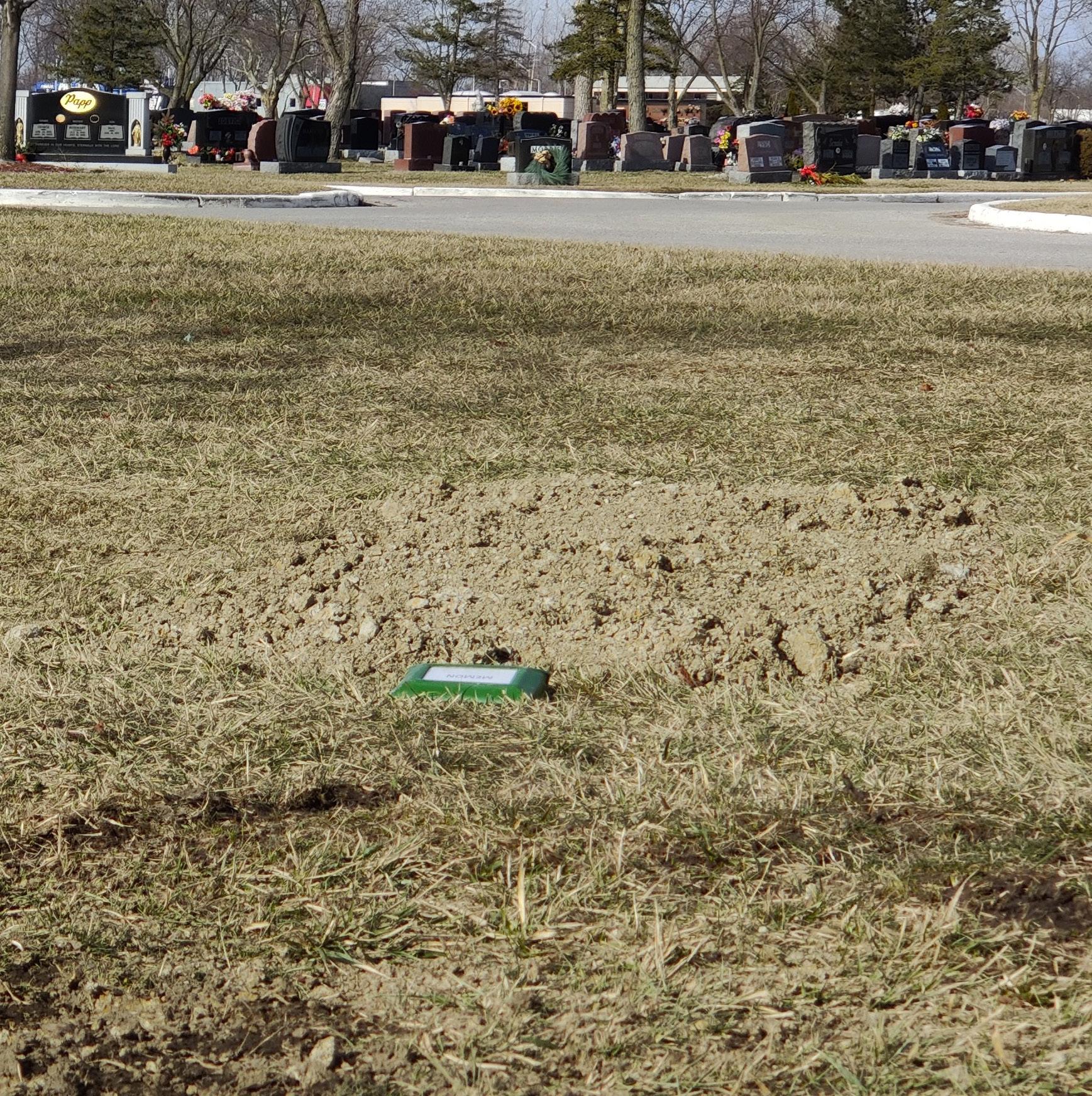
That week his condition deteriorated further. He prayed Maghrib on Thursday, the start of 12 th Rajab, after which he went to bed and as usual woke up for dinner and had dinner with his family.

Maulana Mansoor, his older son, and I then helped him with wudu for Isha. He did miswak, rinsed his mouth, and nose and then had a blank stare. He was sitting on the chair, neither moving nor talking. I asked him to lie down in bed but he gestured that he wanted to finish his wudu. We helped him complete his wudu and assisted him in getting him to his room. He could barely walk. He was leaning on the shoulders of myself and Maulana Mansur. We wanted him to rest in bed for a bit but he pointed to the chair and wanted to pray Isha.
Subhanallah! The hadith state that Rasullullah s fainted each time he sat to perform wudu for Isha on the Thursday prior to his demise. It is also mentioned that he was unable to walk on his own and was leaning on the shoulders of Sayyiduna Abbas g and Sayyiduna Ali g while going for salat.
Hazrat was able to complete the Isha salat and asked about Jumu‘a if he can go for prayers. I told him that we should pray at home. He then walked on his own to his
29 INSIGHT MAGAZINE
bed and slept. A sense of uneasiness ensued and I told Mufti Husain who was staying with him to call me immediately if his condition worsens.
Friday Morning , 12 Rajab 1444/ Feb 3, 2023

Hazrat woke up a couple of times during the night as usual to use the bath room. At one occasion, he asked Mufti Husain as to when to recite Surah Kahf. That was perhaps his last conversation, pointing towards the signficance of reciting Surah Kahf on the day of Jumua and in the current days of fitna. He then woke up for Fajr and walked himself to the bathroom where he made complete wudu. Even with so much weakness, he never missed even a single mustahab in wudu. He then prayed Fajr. We talked about a few alterations in his medications and then
he went to bed to sleep at around 6:30 am. He woke at about at around 7:30 to use the bathroom. According to Mufti Mahmood, his grandson who used to stay with him everyday from Fajr to Zuhr, he walked to the bathroom without assistance. He then woke up again little after 8 am and while sitting on his chair, fell unconcious. Mufti Mahmood immediately called Mufti Husain and both of them helped him in the bed and I received the call which I had always dreaded. When I arrived he was unconscious and breathing heavily. While I examined him, he opened his eyes. I asked him how he was feeling, but he did not reply and closed his eyes again. It appeared
from Dow Medical College
Abdul Qadir Raypuri passes away/ move to Saudi Arabia Hajj Hazrat Zakariyya
30 INSIGHT MAGAZINE 1935 1950 1956 1957 1961 1962 1964 Hazrat is born in Mongrol, India Migrates to Pakistan Completes High School/ first visit to Shaykh Zakariyya Bay’at with Hazrat Maulana Abdul Qadir Raypuri
Graduates
Maulana
TIMELINE OF HAZRAT DR.
as if he was sleeping as usual. However, I could see he was having apenic spells and his breathing got slower and slower until he took his last breath at 8:51 am and departed from this world. Innó lillóhe wa innó illayhi róji ‘ ñn.
Indeed, as per the narration of Tamim Dari g regarding the death of the Awliya of Allah, Allah would have said to the angel of death, “Go to my friend, (Dr. Ismail Memon) and bring forth his soul. I have tired him both in joy and in sorrow and found him as I liked him to be. Bring his soul to Me so he may be free from the pains of this world.”
(As for an obedient man, it will be
said to him,) O content soul, come back to your Lord, well-pleased, well-pleasing. So, enter among My (special) servants, and enter My Paradise (87:27-30).

TIMELINE DR. ISMAIL MEMON r
Hajj with Hazrat Shaykh Zakariyya
Ramadan with Shaykh Zakariyya in Saharanpur and khilafat
Hazrat migrates to Canada
Visit to Shaykh Zakariyya after Ramadan in Shawwal
Shaykh Zakariyya passes away
Hazrat establishes Darul Uloom Canada [Chatham, ON]
Hazrat establishes Darul-Uloom al-Madania [Buffalo, NY]
passes
31 INSIGHT MAGAZINE 1964 1966 1982 1985 1990 2010 1967
RAMADAN: THE MEANS OF SPIRITUAL ELEVATION
Reflections on Ramadan with My Shaykh, Dr. Ismail Memon
by Dr. Kamran Karatela
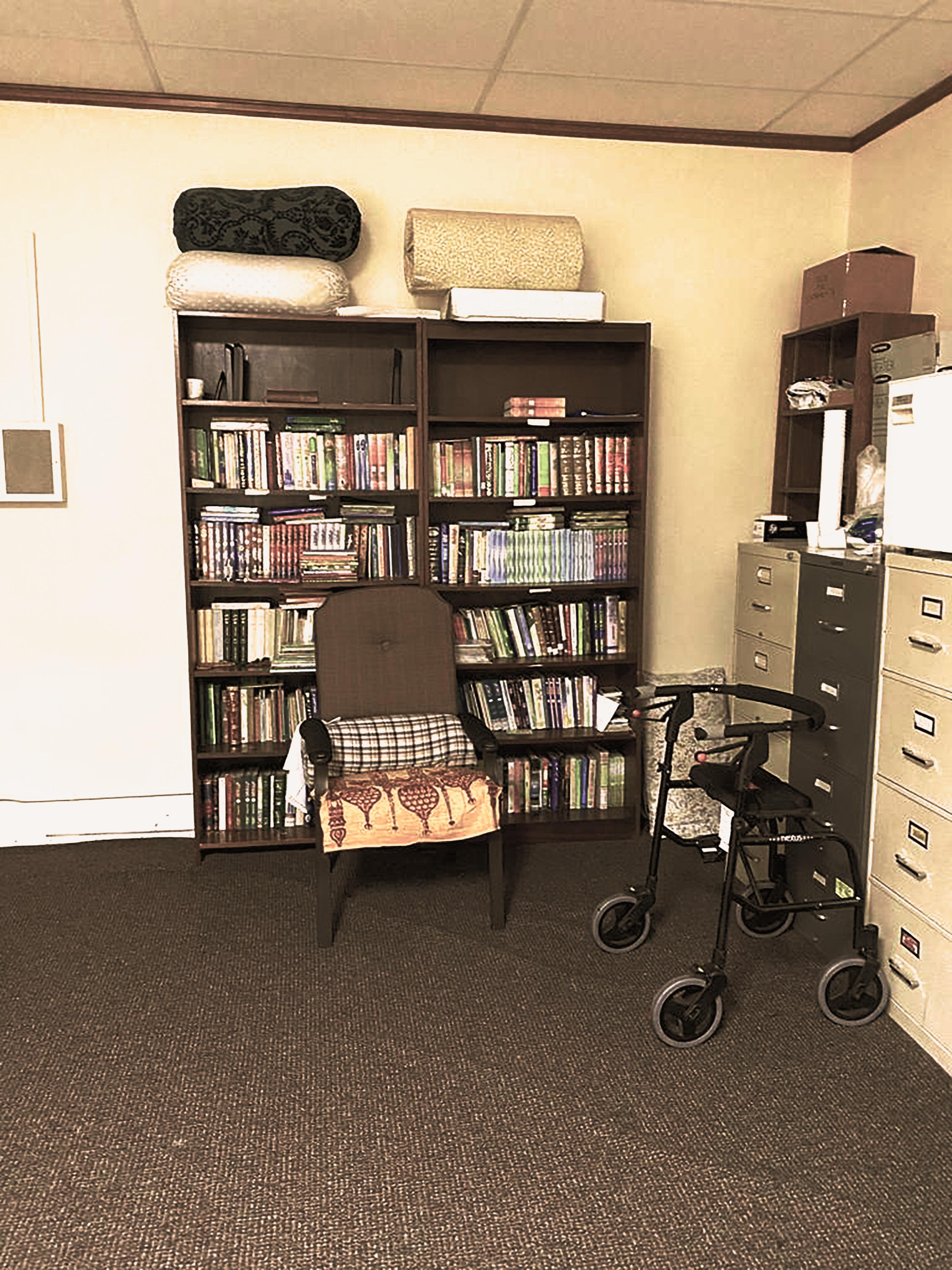
“Y ou should spend time in Ramadan with us.” I clearly remember him saying this to me in my first conversation with him – a request I heard him make to hundreds of people in the years to come.

“Yeah, maybe, if I get time off,” was my response. It was the year 2000 when I had first arrived in the U.S. for post–graduate medical training, not knowing where I would match for residency. Following the farewell instructions of my Shaykh Hazrat Molana Hakim Akhter, I was to remain in touch with Hazrat Dr. Ismail Memon. My phone conversations would be limited to requests for duas
while he would seek to extract some sort of commitment for spending Ramadan with him.
In my mind it was a far-fetched thought until I matched at a residency program that was only a 3-hour drive from Buffalo, NY. Though he knew little about me, I cannot forget the happiness in his voice when I informed him that I would be moving close to Buffalo.
And here I was, a month into the residency training, on a beautiful summer weekend in front of the man who was to become the all-in-one spiritual guide, a devoted mentor, and father figure for me. His radiant face, beaming smile, affectionate
33 INSIGHT MAGAZINE
eyes, and warm personality instantly captivated me.
Knowing that Hazrat Molana Hakim Akhter had directed me to him, he welcomed me as a special guest, showering upon me worldly and spiritual gifts. Truly, one of the core qualities of Hazrat was his awe for the Ulema and Awliya.
Our weekend long meeting ended up with the same invitation for spending time in Ramadan. I left with a relatively firmer intention of i’tikaf in Ramadan at his place.
No Muslim is oblivious of the importance, virtues and blessings of Ramadan and i‘tikaf and we try to benefit from the tremendous blessings this month rains upon us. Thus, those who do not pray salat during rest of the year show up at the masjids, the Quran that is kept closed through the year on the shelf is opened up, the nights that are confined to comfy beds are spent on prayer rugs and the days that tempt worldly pursuits and sins are filled with self-restraint and patience.
However, this concept of Ramadan being merely a means of attaining rewards and virtues changed since I started to spend Ramadan with Hazrat. And I will tell you
why…
First Impressions
Like many of us, i‘tikaf to me meant nothing more than spending the last ten days of Ramadan in the masjid. As a first-year resident, I did not have the luxury of altering my schedule but was able to get some time off during the last

ten days of Ramadan.
This was the year when Masjid Zakariya sustained significant structural damage from an accidental fire that rendered it inhabitable. Thereafter, the i‘tikaf took place in the Darul-Rasheed building, the girls’ seminary branch of Darul Uloom Al Madania.
As I stepped into the makeshift masjid, a great sense of tranquility descended upon me. It was day time and most people were either resting or busy in their worship.
After Asr, there was taleem, and after taleem I was warmly greeted by Hazrat, who asked me to come to his room. As I sat in front of him, he asked me how
34 INSIGHT MAGAZINE
long I was there for, and my response was a mere three day stay. He smiled and said, “Just three days?”

He told me of mu’takifeen who came for the whole month and how he would go to Saharanpur to spend the whole of Ramadan with Hazrat Shaykh Zakariya.
That was new to me. “No way I could spend a whole month in itikaf. Impossible. I can’t do it.”
Crazy thoughts cluttered my mind.
We broke the fast with dates and the famous falooda drink. After Maghrib salah, my short nawafil ended quickly, but I saw people standing with no signs of ending it any time
soon. I feared there would be no dinner. Ravenous, I stood up and quickly completed two more rakats, only to find people still praying.
Finally, there were signs of movement as I saw some people heading in one direction and I followed them to a simple and well-organized dining area.
After Isha and tarawih, taleem was read from Fad’ail-e-Sadaqat , which was mesmerizing. It truly felt like sakeena (tranquility) covered such gatherings as cited in many ahadith.
I went to bed assuming everyone else would do the same. When I woke up in the middle of the night, I
35 INSIGHT MAGAZINE
Ravenous, I stood up and quickly completed two more rakats, only to find people still praying. Finally, there were signs of movement as I saw some people heading in one direction and I followed them to a simple and wellorganized dining area.
found empty beddings. I quickly got up and saw people deeply engrossed in prayers. Young kids in small jamaats were performing qiyam al-layl reciting Quran while others were busy in duas, zikr and muraqaba (meditation). It was an amazingly beautiful sight, the likes of which I had never seen before.
Three days went by very quickly but left a lifetime of impression on my heart. Tears flowed as I departed from that blessed gathering, already yearning for next Ramadan.
In all these years, I finished my residency and fellowship, got married, had kids, and moved to different states, and each subsequent year my number of days in i’tikaf with Hazrat increased until I was able to spend the whole Ramadan in his blessed company. Hazrat used to say eleven months for the world and one month for Allah.
Ramadan: The true meaning
Benjamin Franklin once said, “Tell me and I may forget, teach me and I may remember, involve me and I learn.”
We all know the virtues of Ramadan, can read hundreds of books emphasizing the virtue of this month, and even try our best to get the most out of it in our personal time. However, the true meaning and value can only be learned by being in the company of the Awliya of Allah.
Ramadan is not only meant to bless us with immense virtues, but
most importantly, it is meant to help us attain taqwa (piety). It gives us a chance to seclude and free ourselves from this world and build a connection with our Exalted Lord.
Allah states in the Quran, “Oh, you who believe! Fasting is prescribed to you as it was prescribed to those before you, so that you may learn piety and righteousness” [2:183].
This is why Hazrat used to leave Medina Munawwara in Ramadan to stay in the company of his Shaykh Hazrat Maulana Zakariya in Saharanpur, foregoing the manifold rewards and virtues of being in the Haram in lieu of purifying his heart and establishing the connection with Allah.
Thus, Ramadan had a special place in Hazrat’s life. He benefitted greatly from his Shaykh and following his footsteps, he established the same format at his place in North America. Giving an account of Hazrat’s Ramadan is a subject matter that is enormous, spanning over the course of many decades, and needs more time and space to elaborate upon in depth. However, I will give a summary of the salient features of Hazrat’s Ramadan below:
A Mirror image of Shaykh al hadith’s Ramadan
One of the most outstanding features of Hazrat’s personality was his ardent love for his Shaykh, which was evident in every single aspect of his life. It was a perfect display of how the Sahabah l loved the Prophet a.
36 INSIGHT MAGAZINE
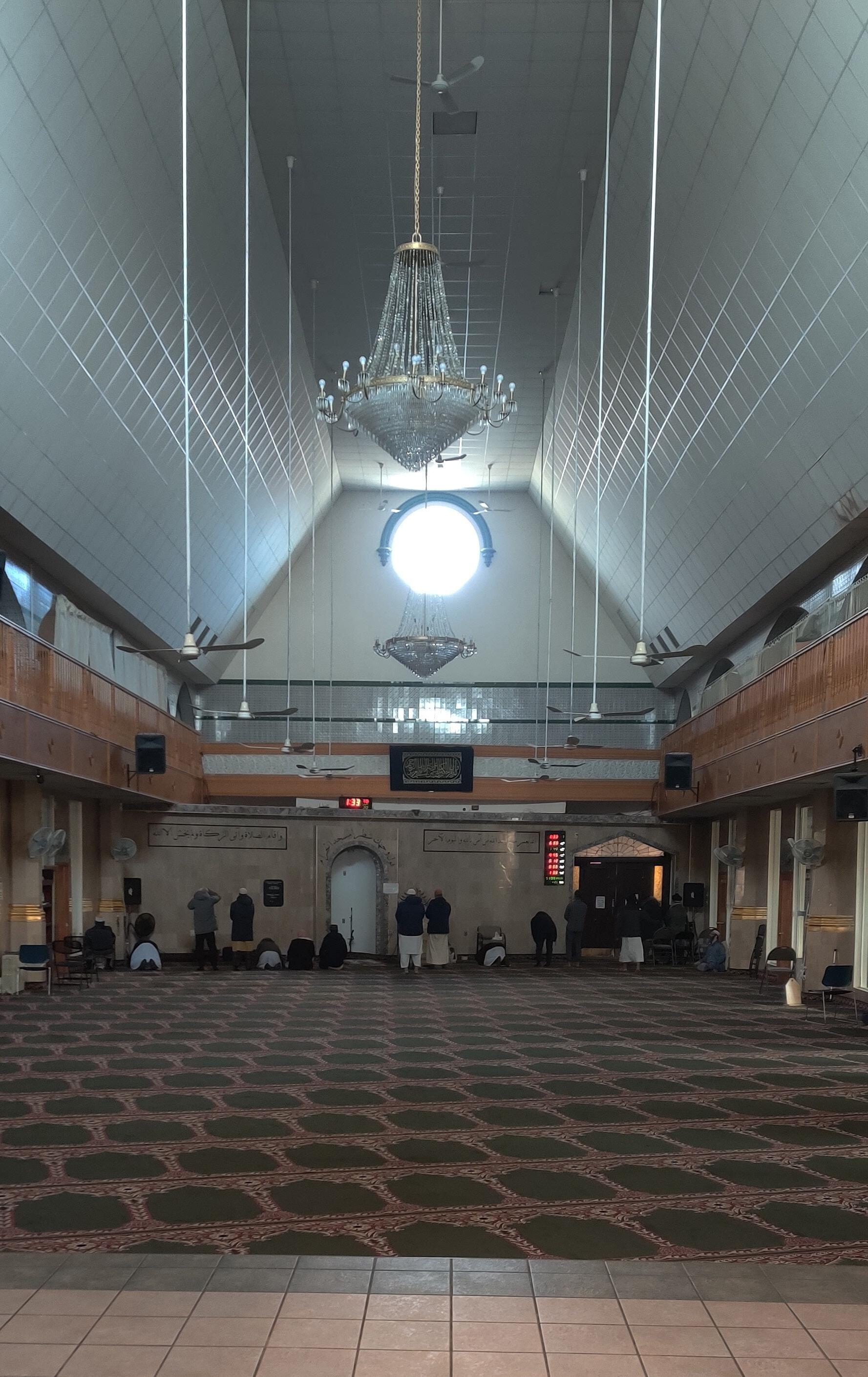
Masjid Zakariyya founded by Hazrat Dr. Ismail Memon r [Buffalo, NY] in 1992.
He had imbibed every aspect of his Shaykh’s life to a point that he would imitate him just like Sahaba emulated the Prophet a . He would share accounts of his Ramadan with his Shaykh and has compiled details of Shaykh al hadith’s Ramadan in his book, The Ramadan of Hazrat Shaykh . The layout of program and schedule that he set was a mirror image of Hazrat Shaykh’s Ramadan in Saharanpur. He even made sure the same books of Tasawwuf that were read out in Hazrat Shaykh al-hadith’s i’tikaf were read in his taleem.
Meticulous Organization
I have never seen a person as well-organized as Hazrat in my life. The way Ramadan was organized under his supervision was unparalled. There have been challenges like fire at Masjid Zakariyya, major life-disrupting storms, migration to Canada, and his ow illnesses, but the organization of i’tikaf went uninterrupted. The most amazing thing was that at each new venue, the system would run so smoothly, that it felt as if had been like that forever.
Hospitality: Unbounded.
Those who had the privilege of spending time in i’tikaf can never forget the splendid display of hospitality and love by Hazrat. All were invited and his humble soul would consider everyone as his guest. He would make sure all their needs were met. It was mind-boggling to observe how he would notice any missing person from the hundreds that came to the dining mat [at iftar] and would
send someone looking for him.
His Vigilance
Hazrat’s foremost concern was proper utilization of time. At the start of each Ramadan, he would ask me to write down my 24 hour schedule, and would
modify where necessary. He would be extremely vigilant on how the time is utilized. Once, he saw me sleeping, and later inquired about how many hours I was sleeping in a day.
Since I was sleeping more than I should have been, he gave me accounts of our elders, as to how they used to spend Ramadan. This was such a sweet and effective way of Hazrat’s manner of teaching. He would never instruct you directly to do this or that, but would always tell
38 INSIGHT MAGAZINE
Since I was sleeping more been, he gave me accounts how they used to spend was such a sweet and effective manner of teaching. He you directly to do this or ways narrate how our time. He would walk around ferent times to see what keeping a vigilant
us how our elders utilized their time. He would walk around the masjid at different times to see what everyone was doing, keeping a vigilant eye on everyone. Particularly, it was his habit to come to the masjid at tahajjud time and observe
more
accounts of our elders, as to spend their Ramadan. This effective way of Hazrat’s He would
ibada would be prolonged. Hazrat had not missed a single salat with jam‘at with first takbir for decades, always used the Sunnah of miswak even when he was sick in the ICU, and never gave up tahajjud, even when he was traveling. During Ramadan, he would pray long rakats in qiyam al-layl, followed by extensive duas. After resting briefly, he would wake up around 10 am, and would once again engross himself in salat al tasbeeh and nawafil until taleem time.
Noon time was reserved for one-onone meetings with guests who wished to meet him. He would listen to them attentively and advise them according to their situations.
the mu’takifeen (people in i‘tikaf), which was in fact a Sunnah. I gathered later that Rasulullah a used to walk around Masjid al-Nabawi and observe the Sahabah while they prayed tahajjud. His
Own Schedule
It is said about the great scholars and pious people of the past that their schedule in Ramadan was not much different from the rest of the year, except that the time they devoted to a particular
After Zuhr, he would oversee the dhikr, and then read. After a brief nap, he would get up for Asr and pray his Sunnah. Asr salah was followed by taleem. He would then engage in du ‘ a just before Maghrib. This routine continued even until his last Ramadan after his health deteriorated significantly and he had become frail. Hazrat indeed was a true legend, one of the most prolific students of Hazrat Shaykh Zakariya who perpetuated his legacy and established the same structured program of i’tikaf in this part of the world, benefitting thousands of Muslims of North America and beyond. Even though he will not be with us this Ramadan, his legacy and his mission of connecting the servants of Allah to Him will continue. May Allah shower His tremendous blessings on Hazrat and place him in the most exalted place in Jannah.
39 INSIGHT MAGAZINE
than I should have
never instruct or that, but would alelders utilized their around the masjid at difwhat everyone was doing, eye on everyone.
Darul Uloom Canada Chatham, ON
Darul Uloom Canada
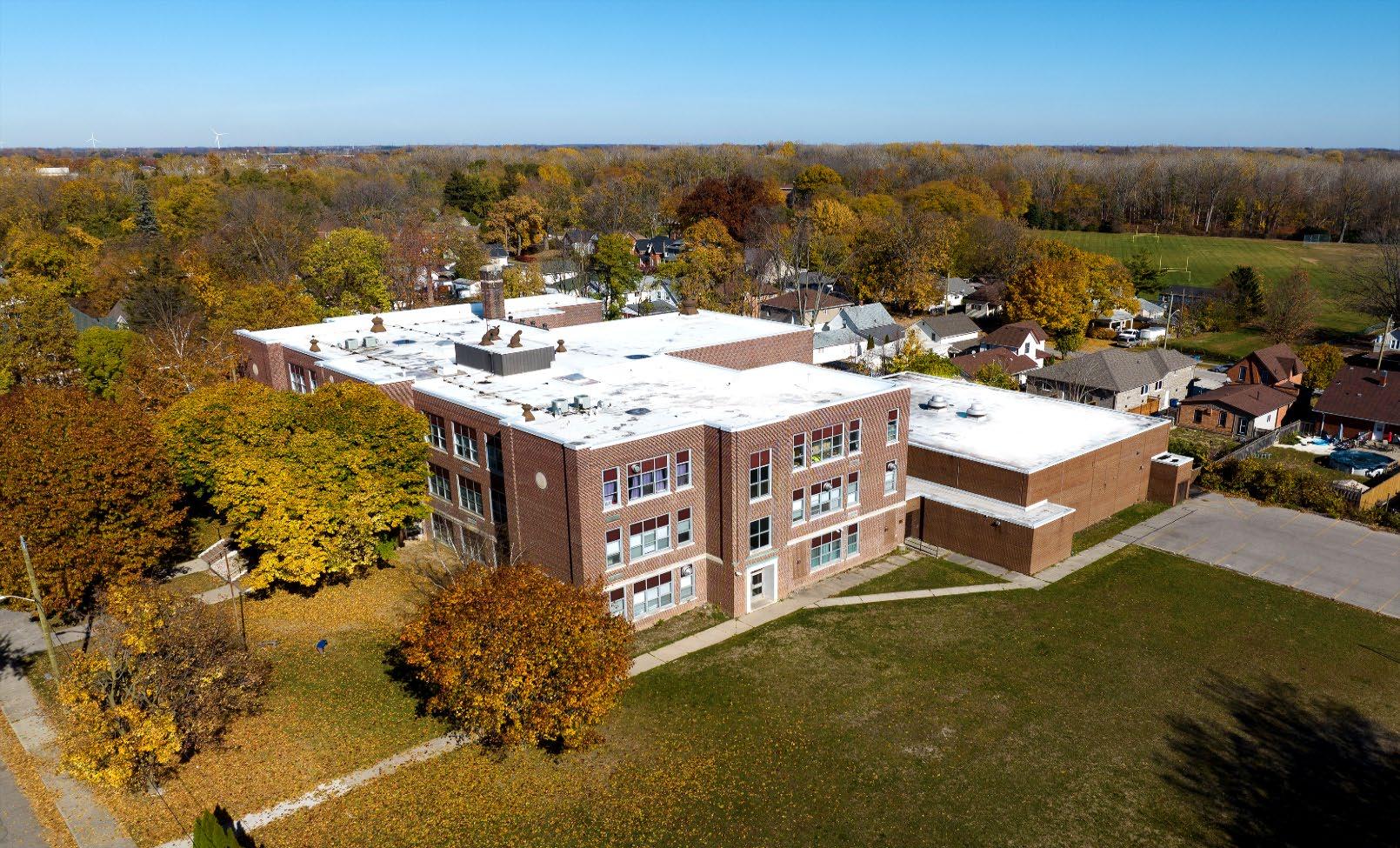
Office: (519) 360-1288
Fax:
Email: office@ducanada.com
Maecenas #654321
DU Canada
51 Prince Street North, Chatham, ON
Darul-Uloom Canada is a charitable organization providing an Islamic environment to learn Quran and Sunnah. The organization offers following programs:
• Full-time Hifz Ul Quran Program
• Six-year comprehensive Alim Program
• Two- Ifta Program
• Primary Education Program
- we collect funds for zakat, sadaqa and donations. Donate via:
-e transfers: office@ducanada.org
-Donation link at DU website ducanada.org
-mail checks to DU Canada
-Darul Uloom is a non-profit organization.



















































